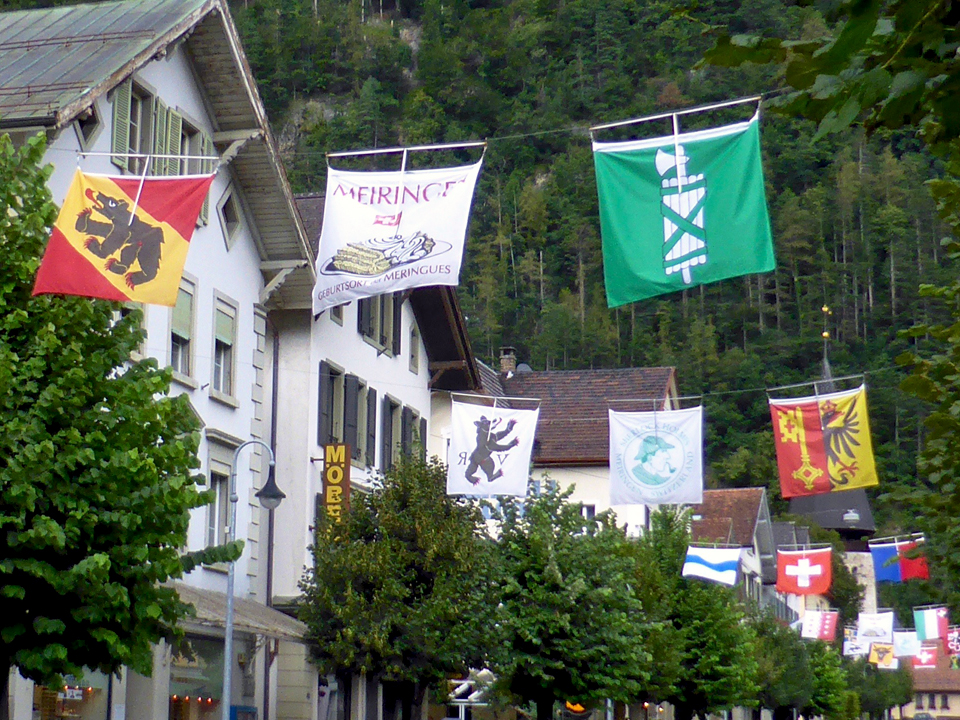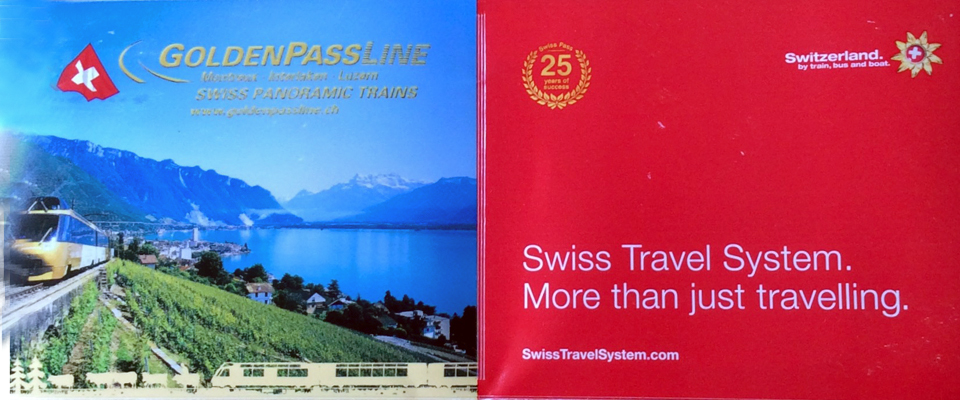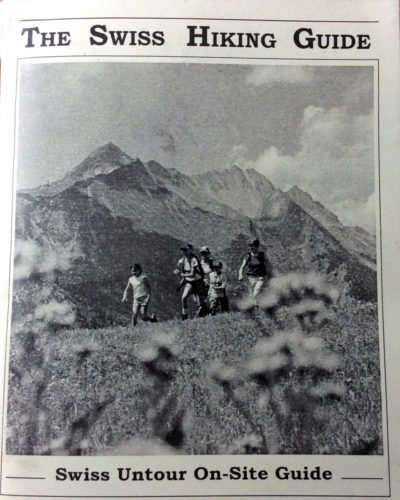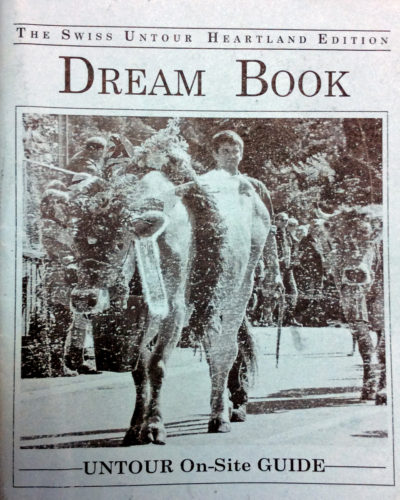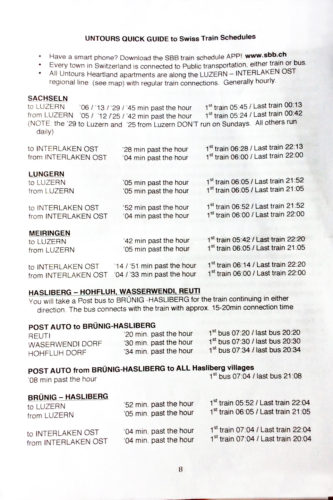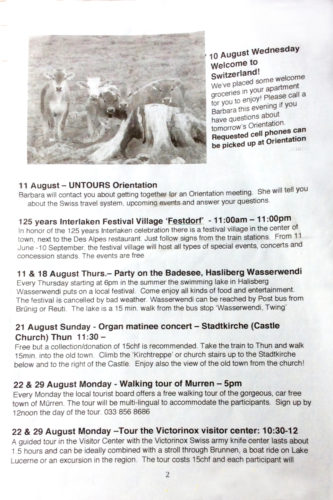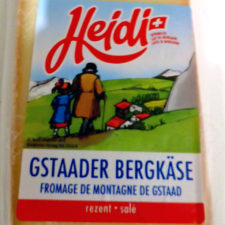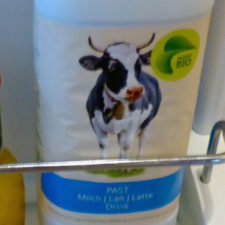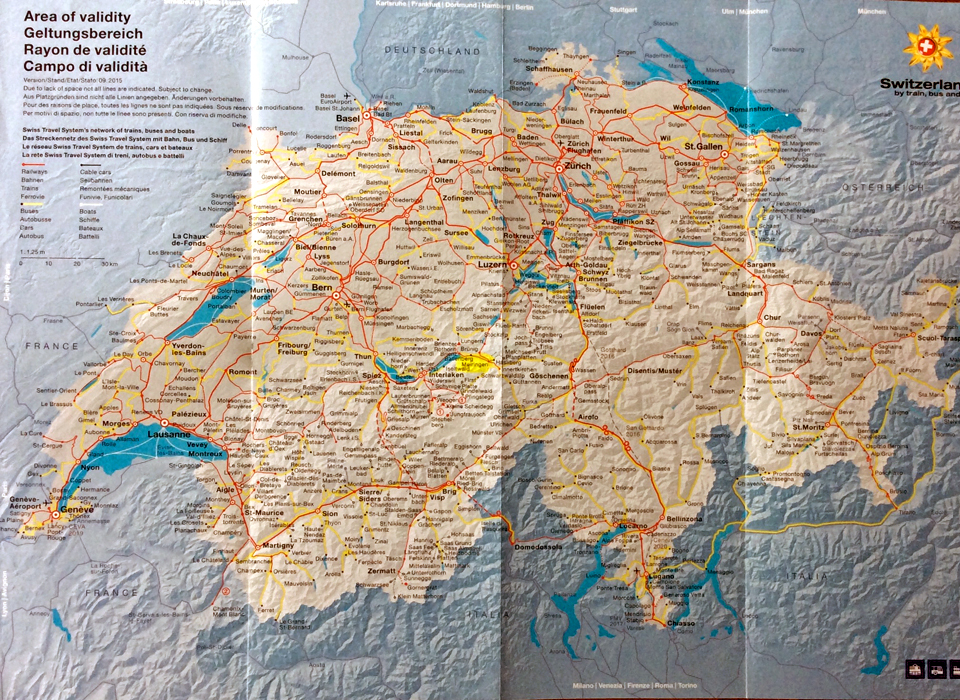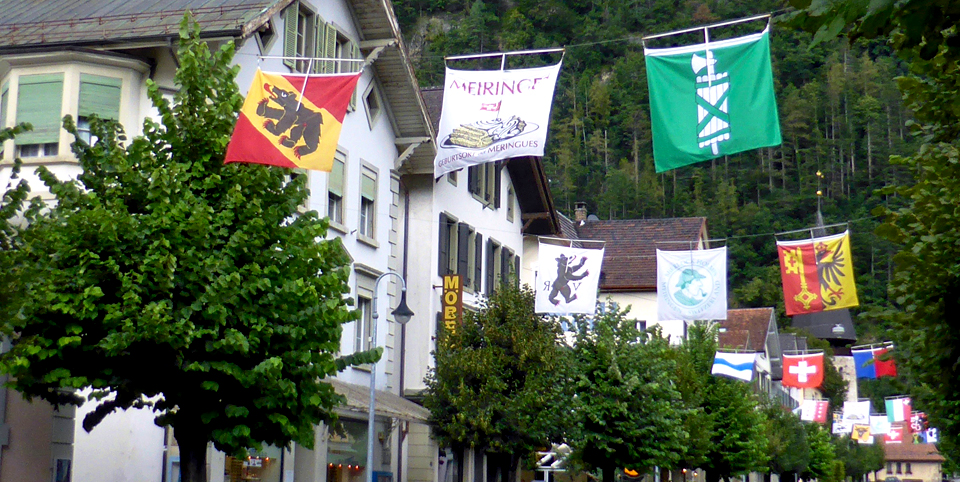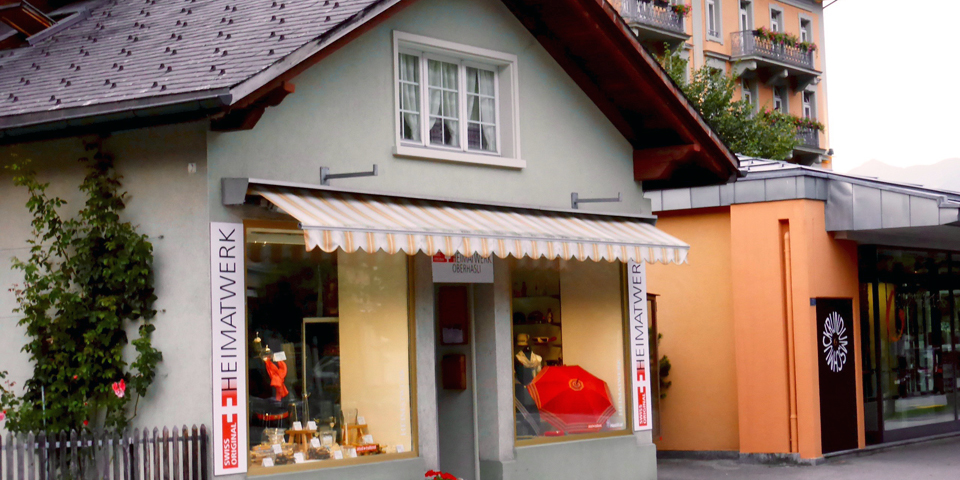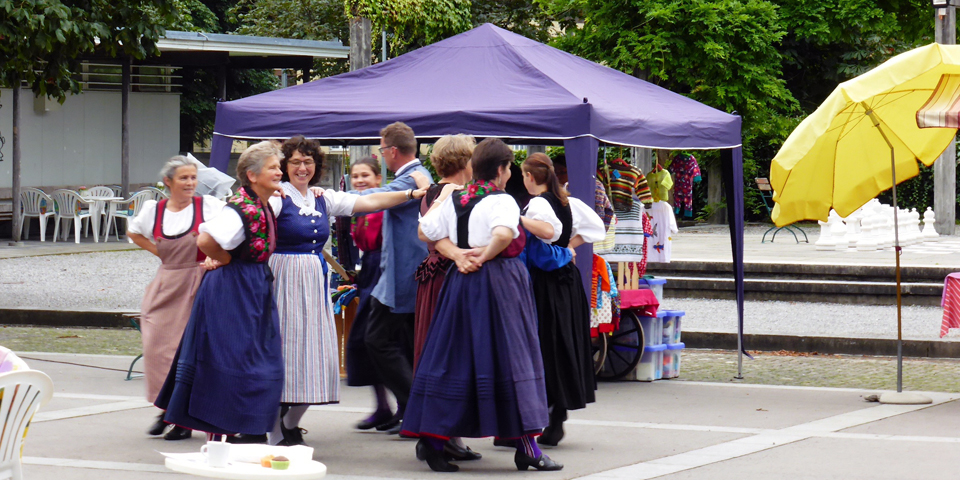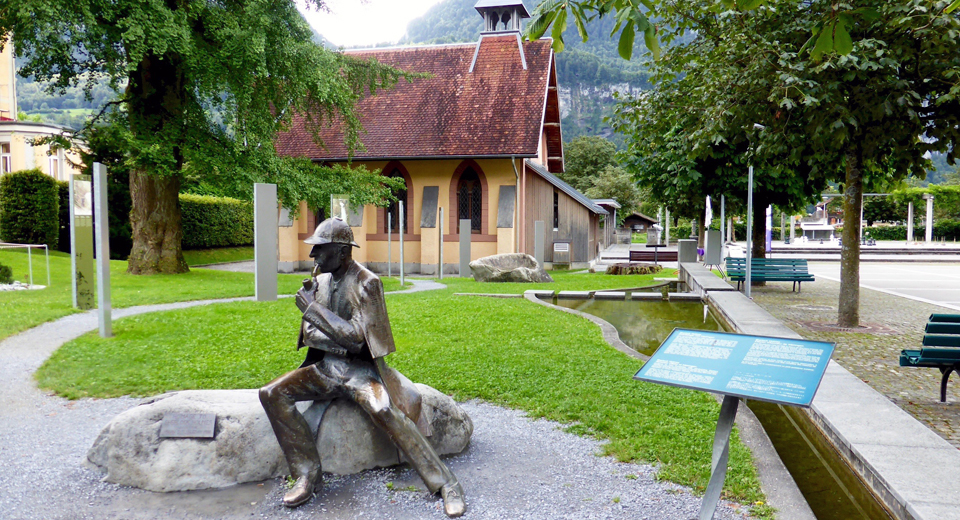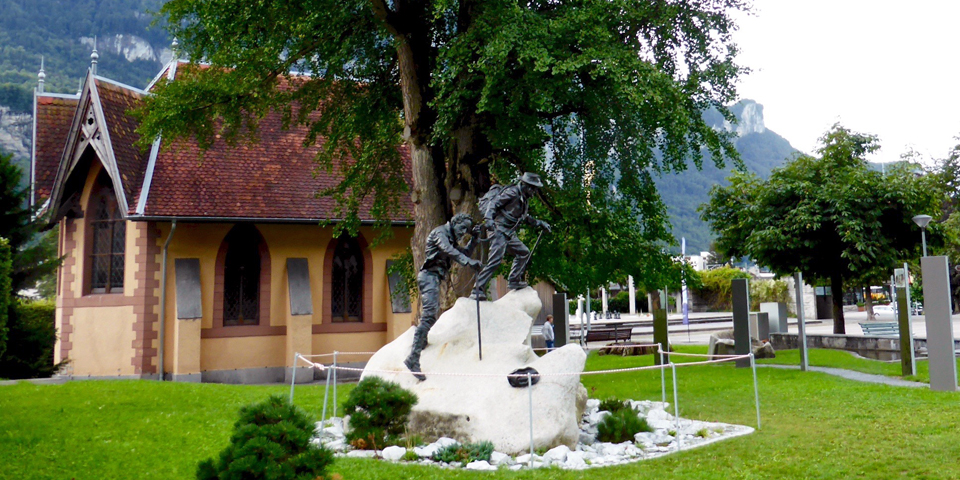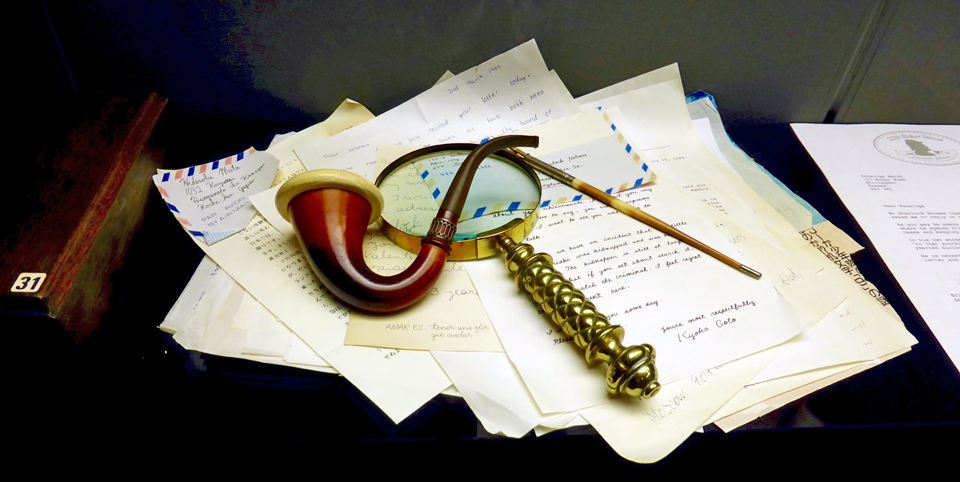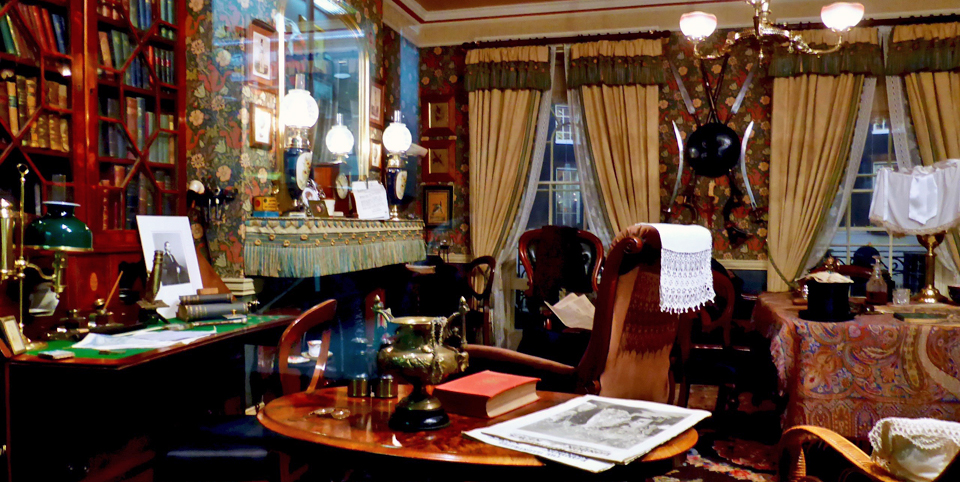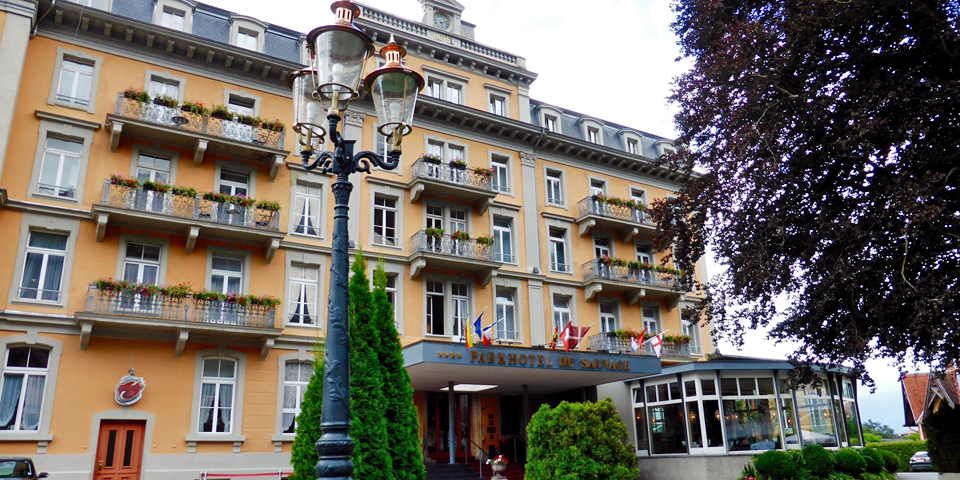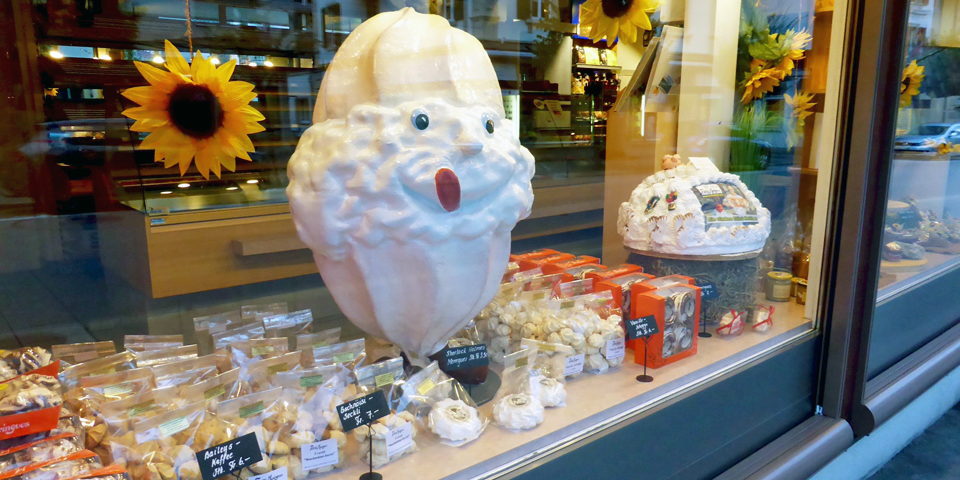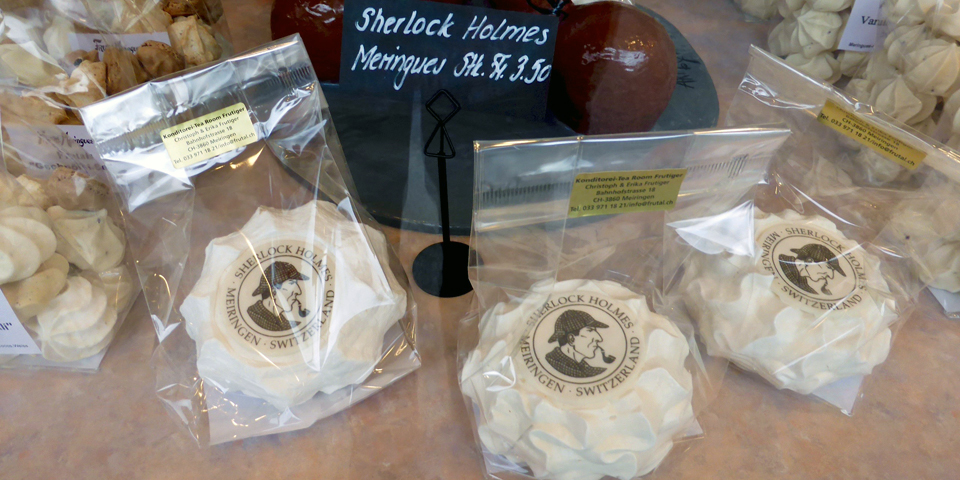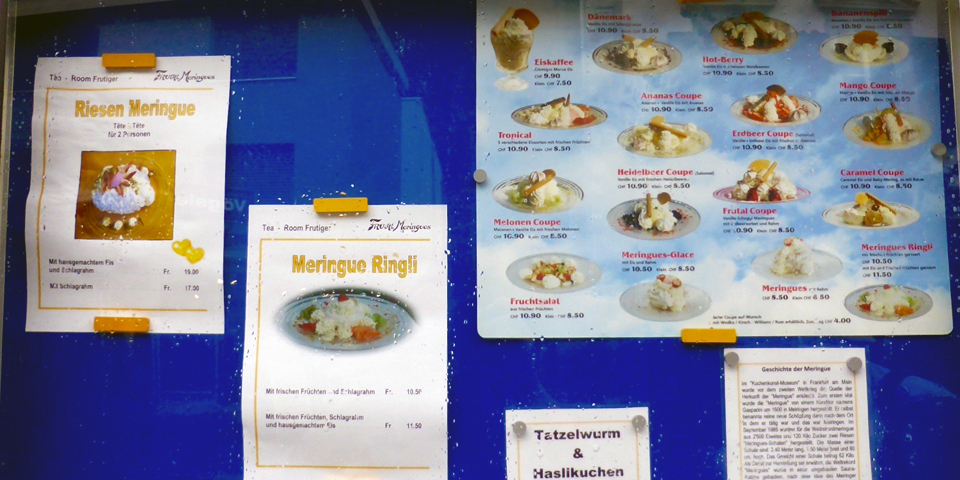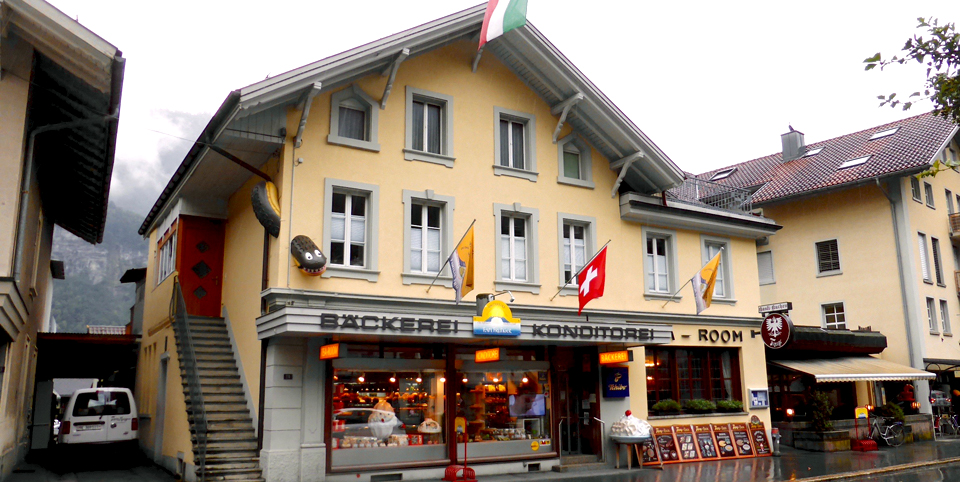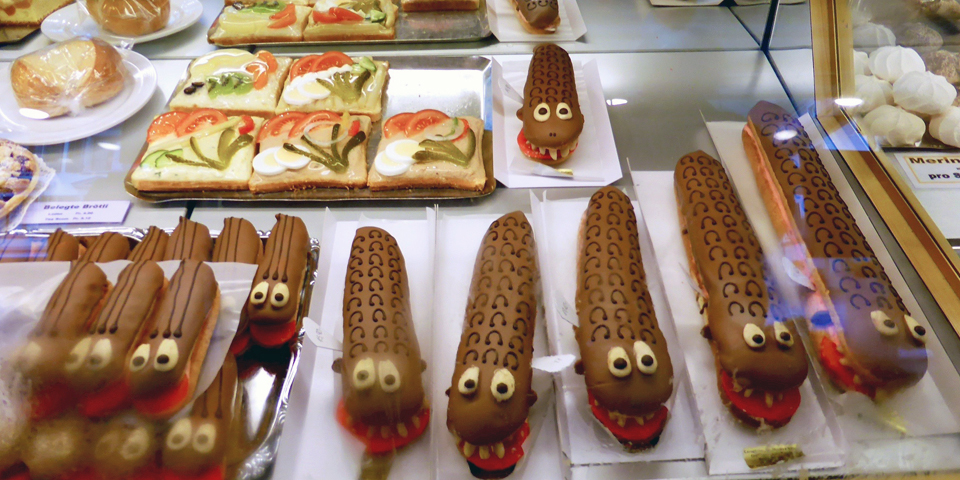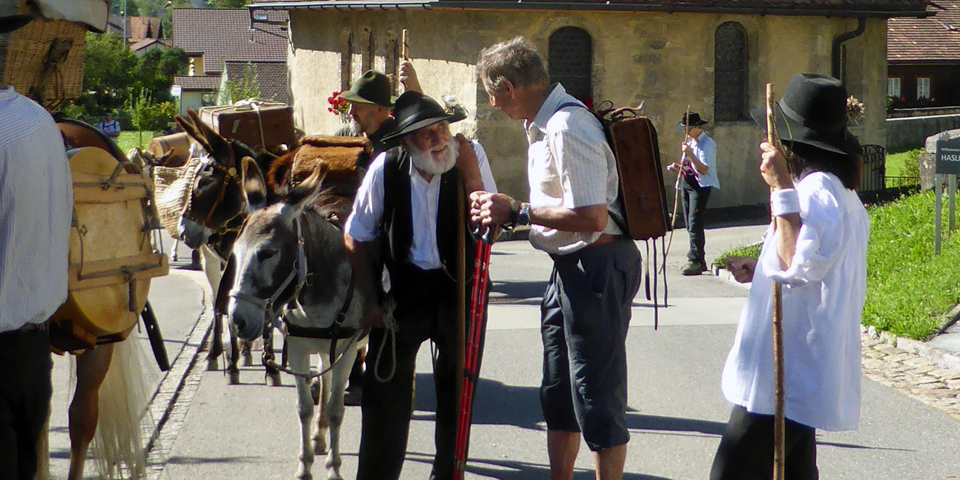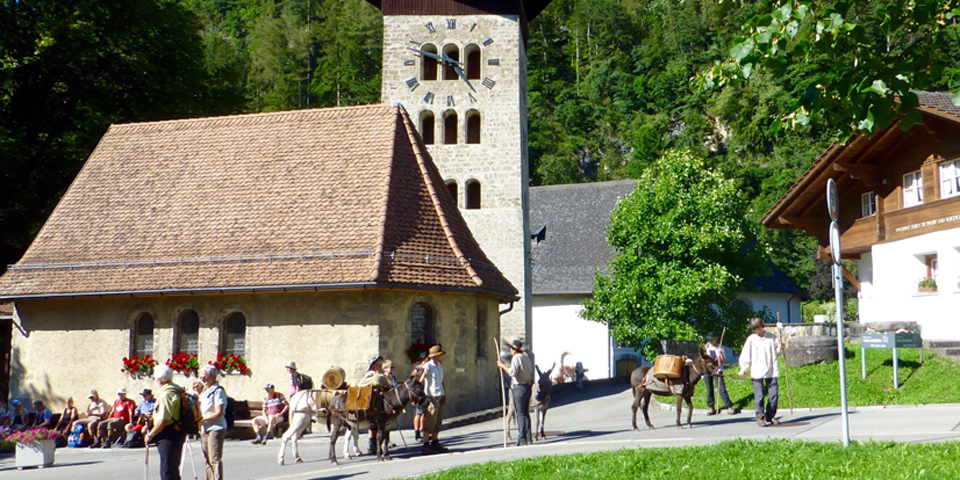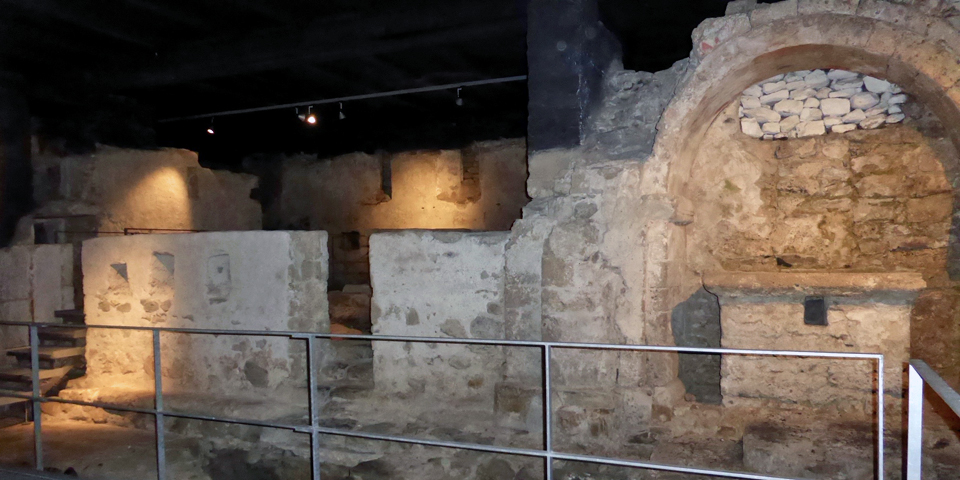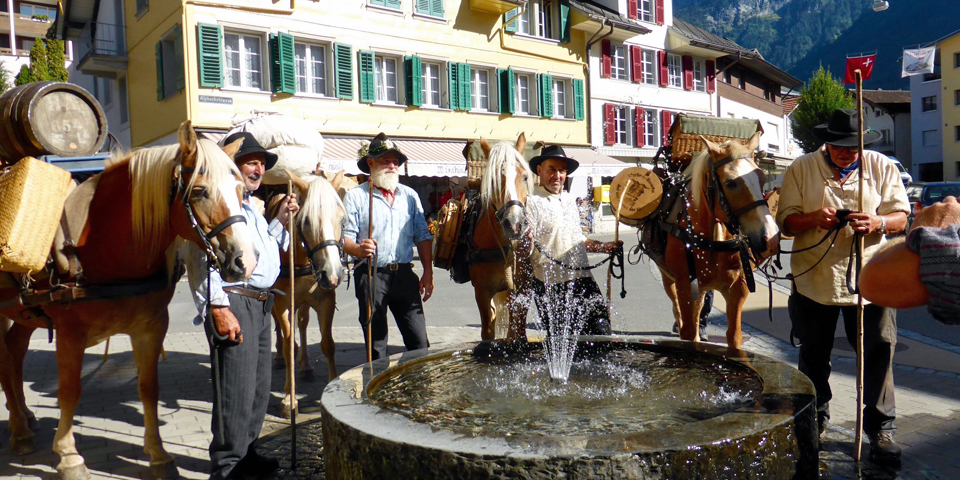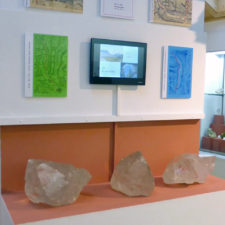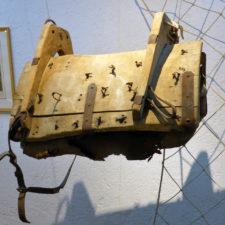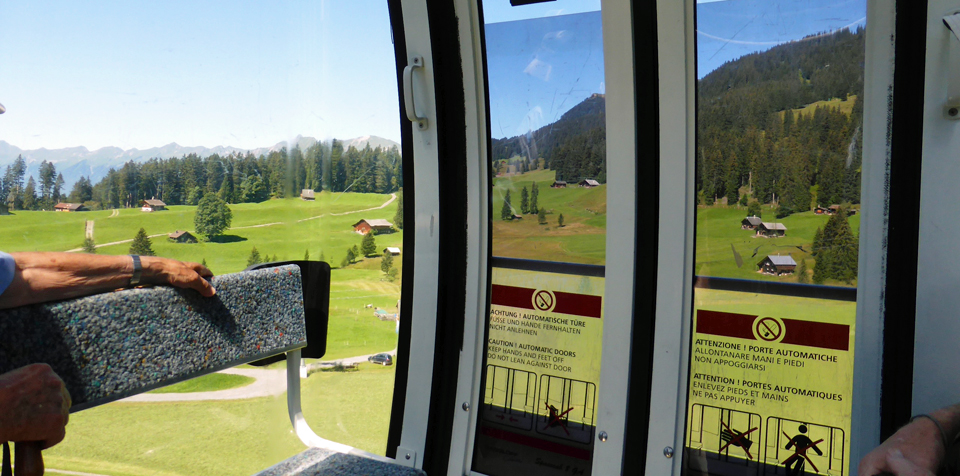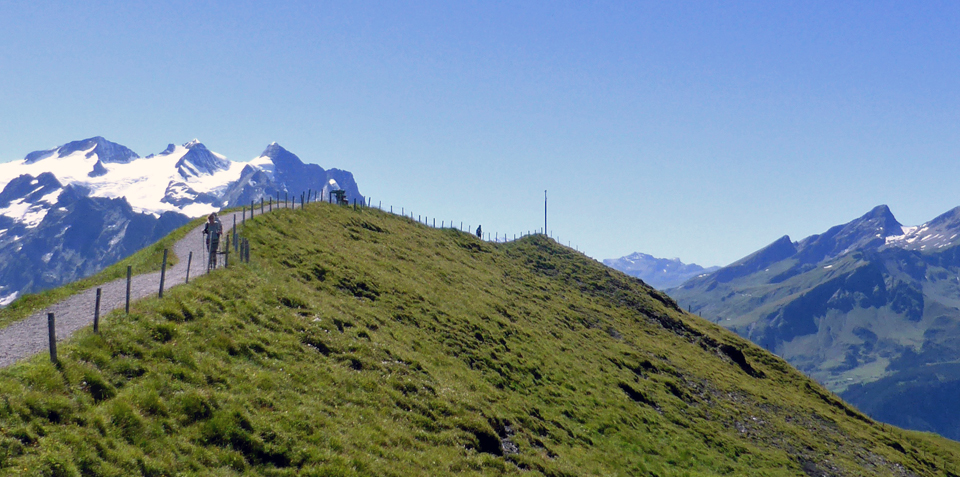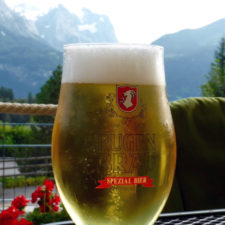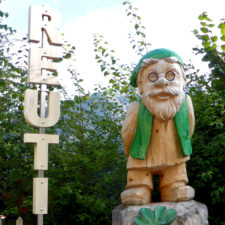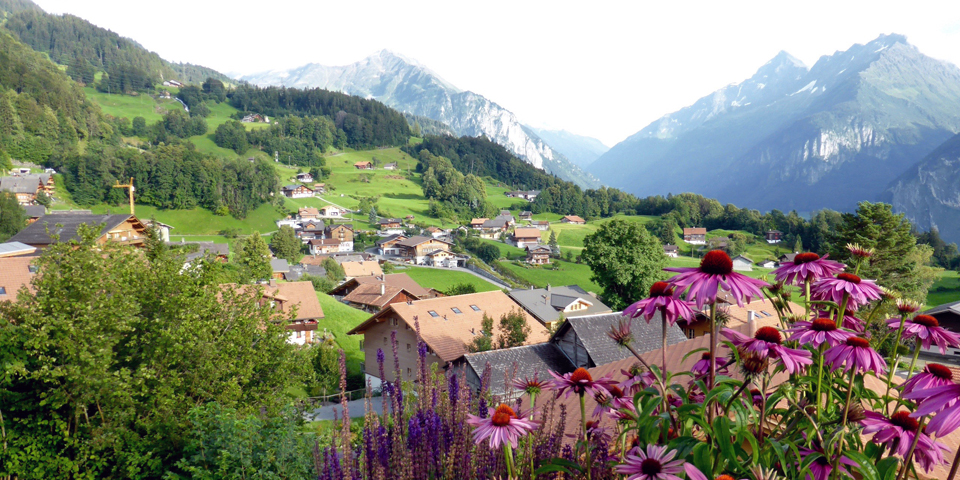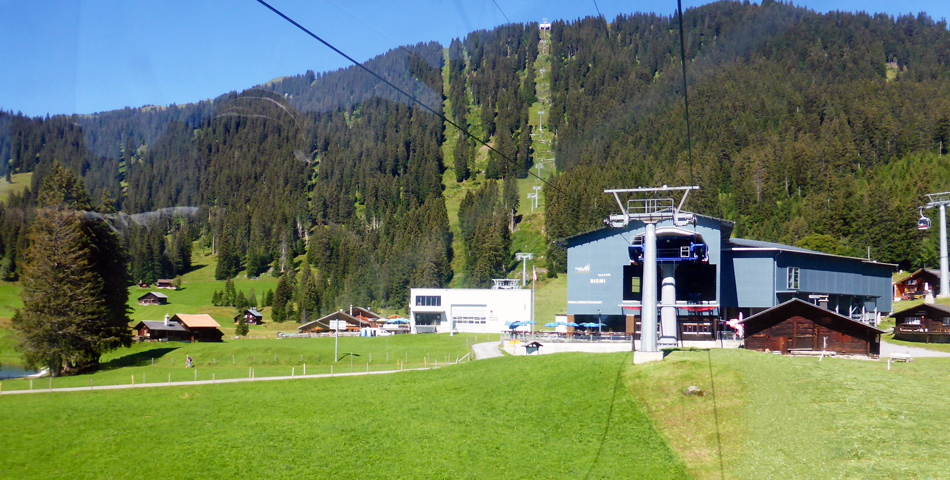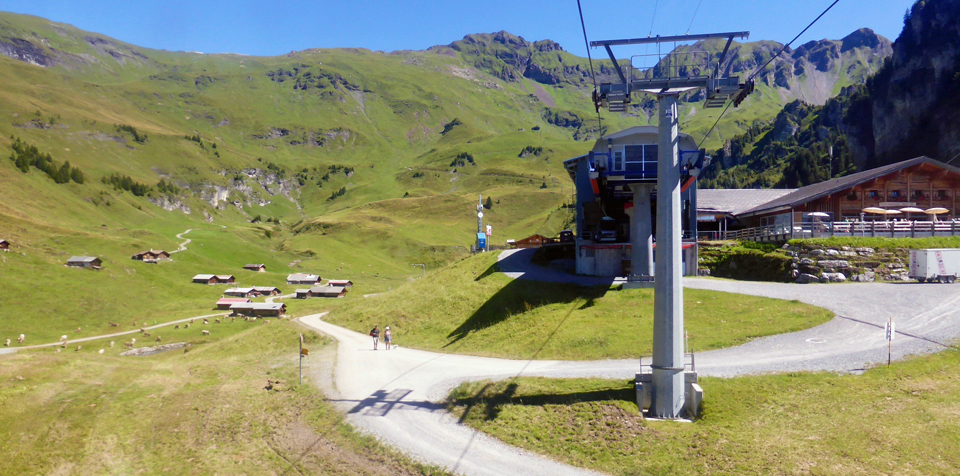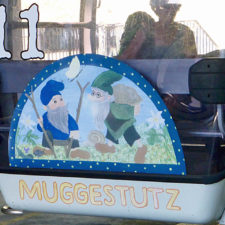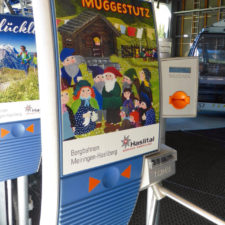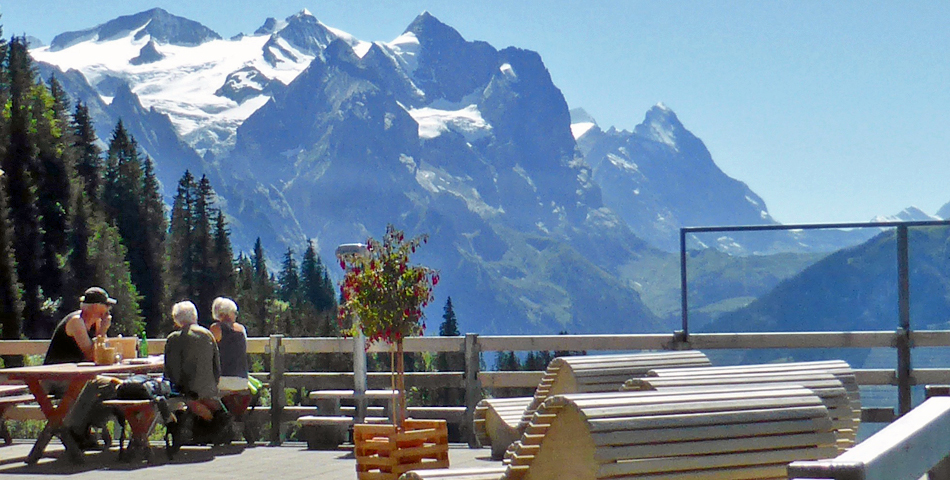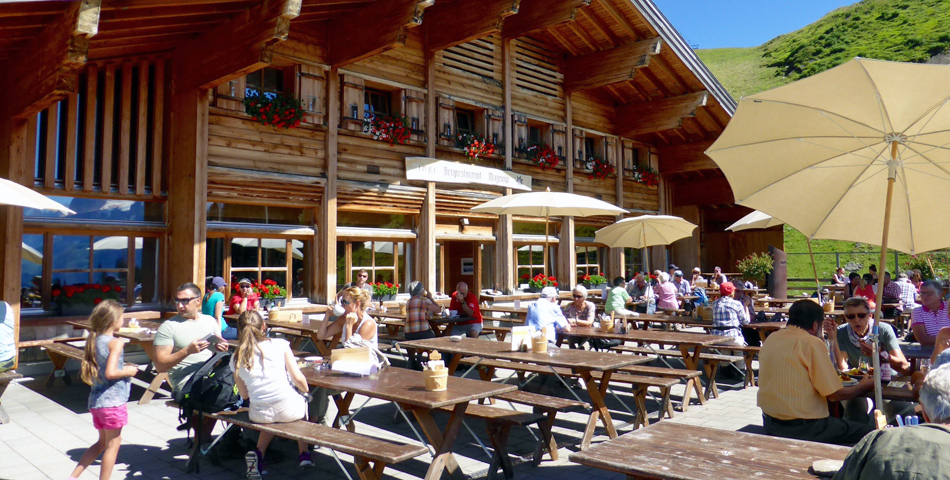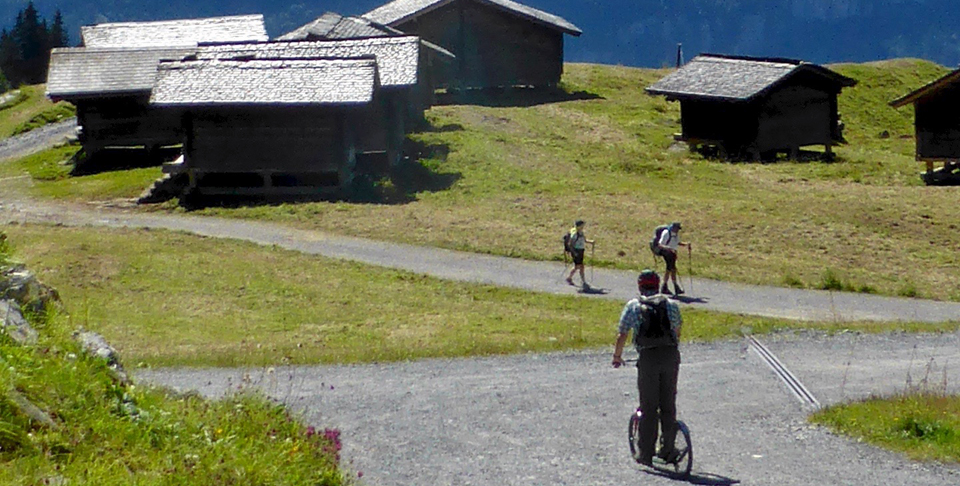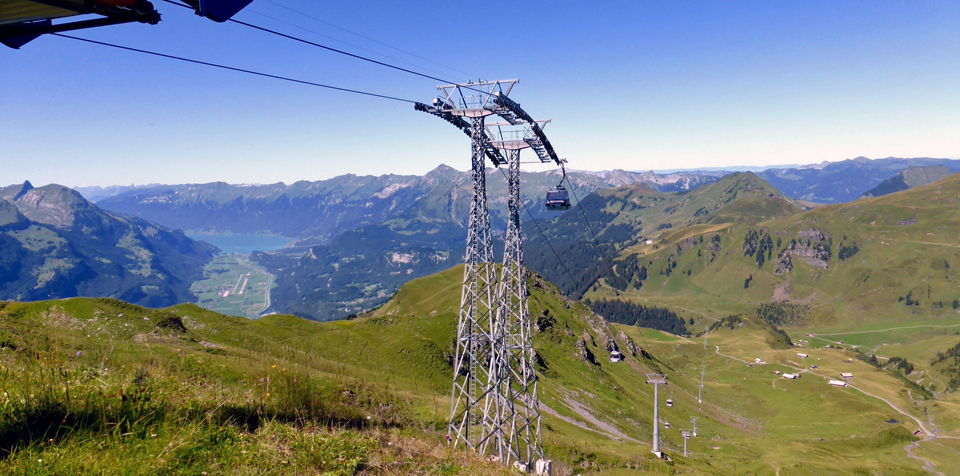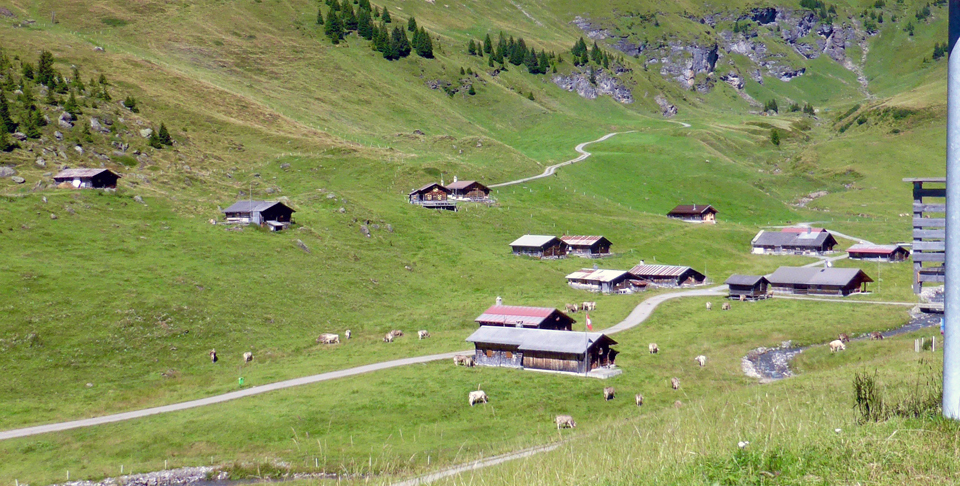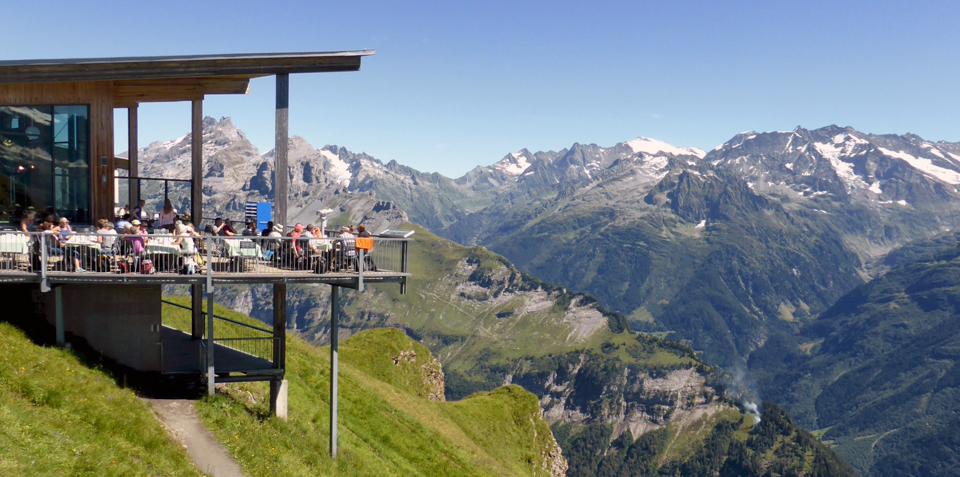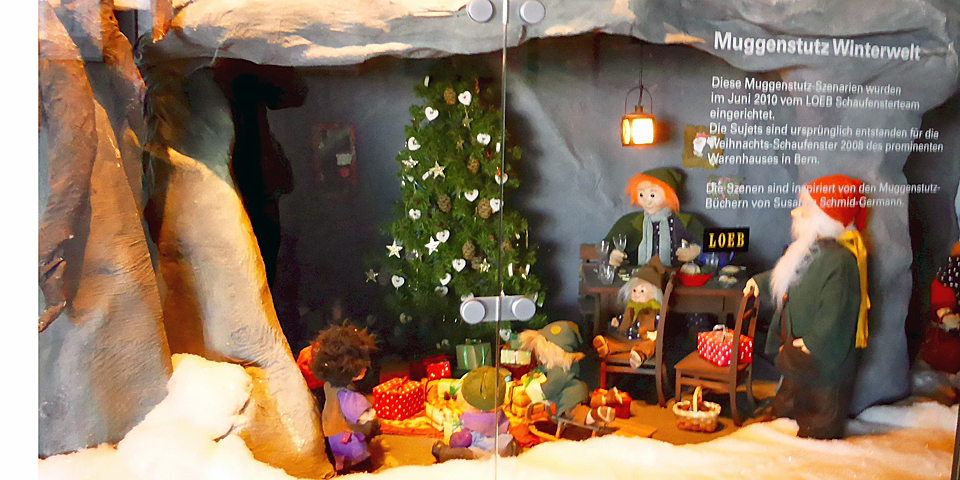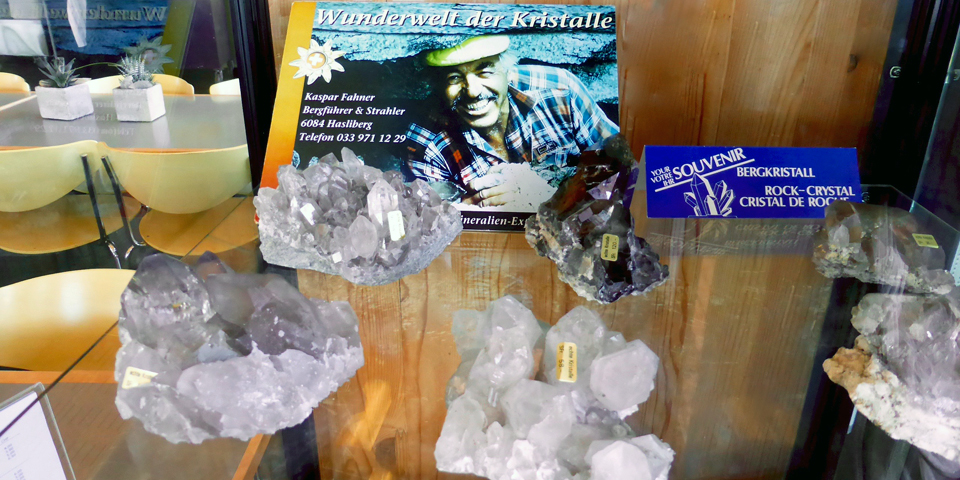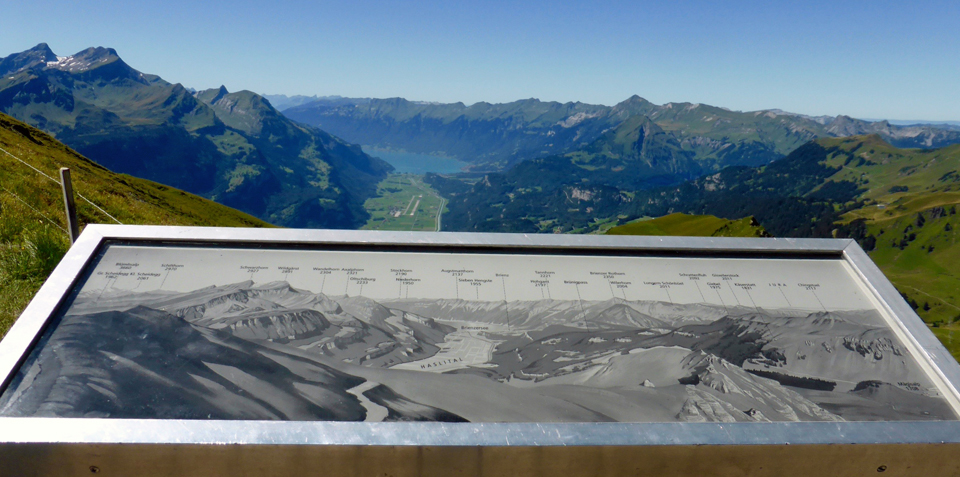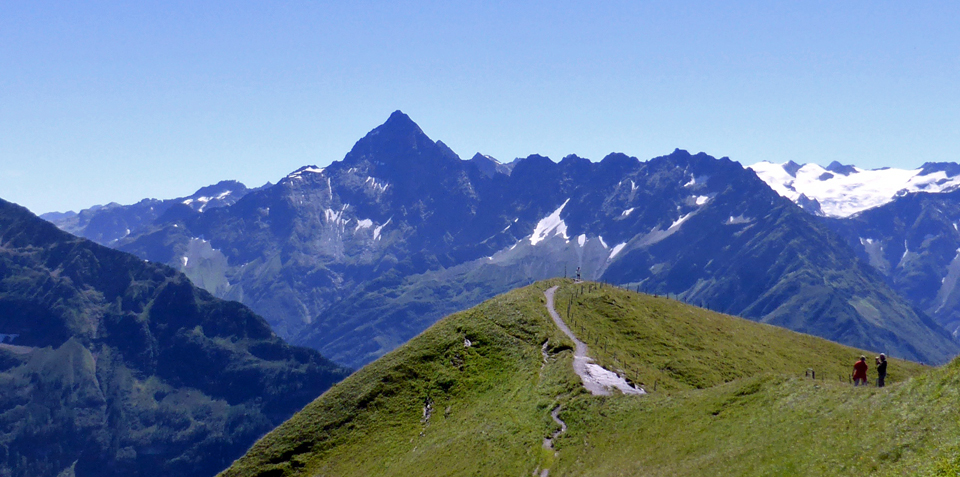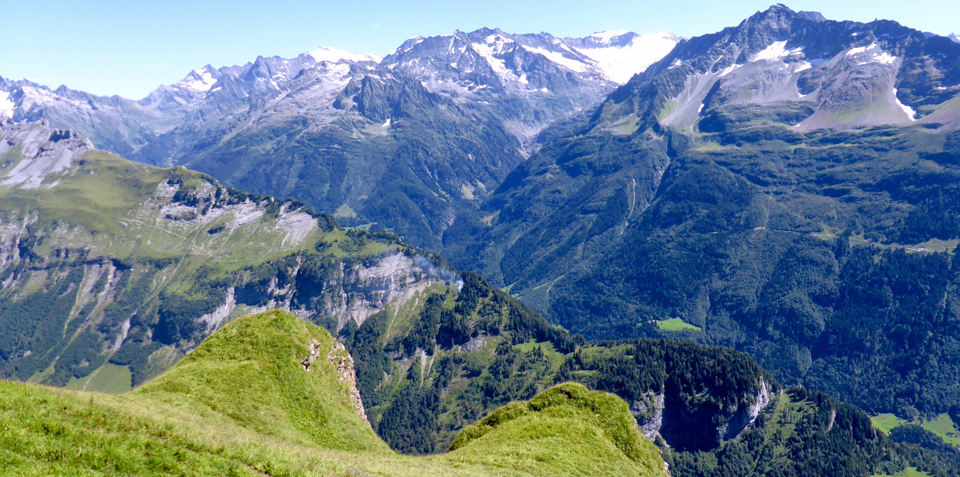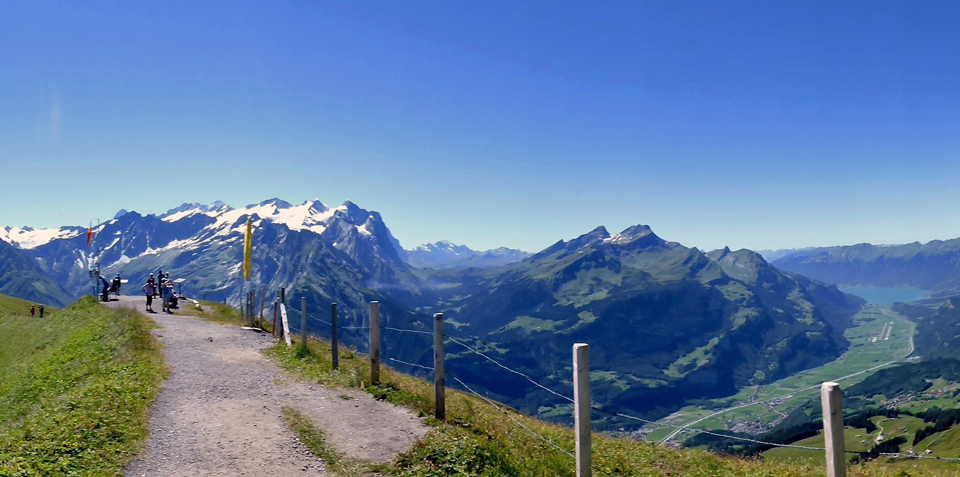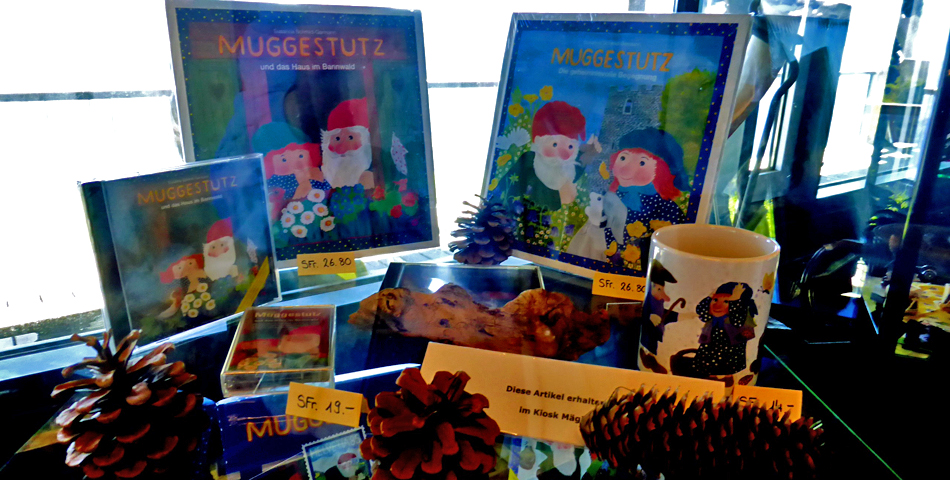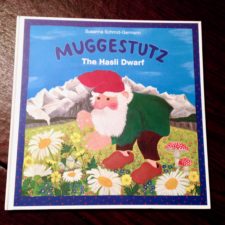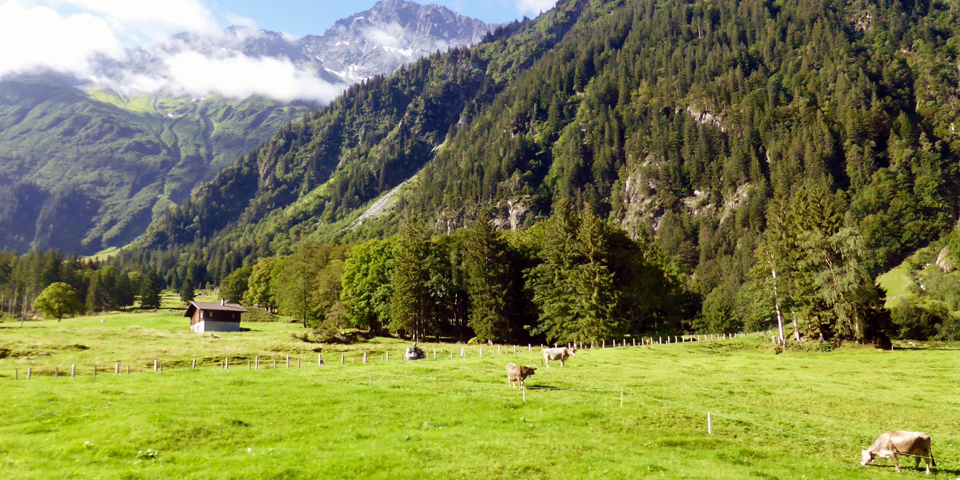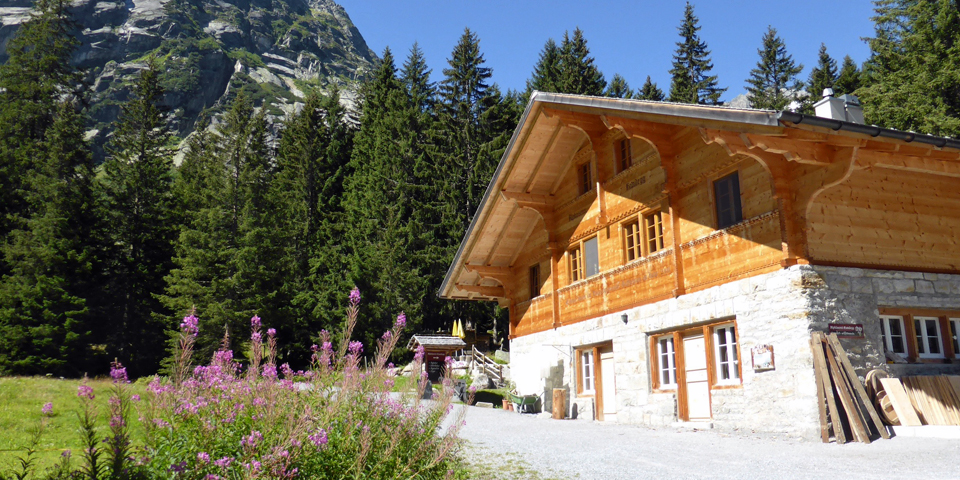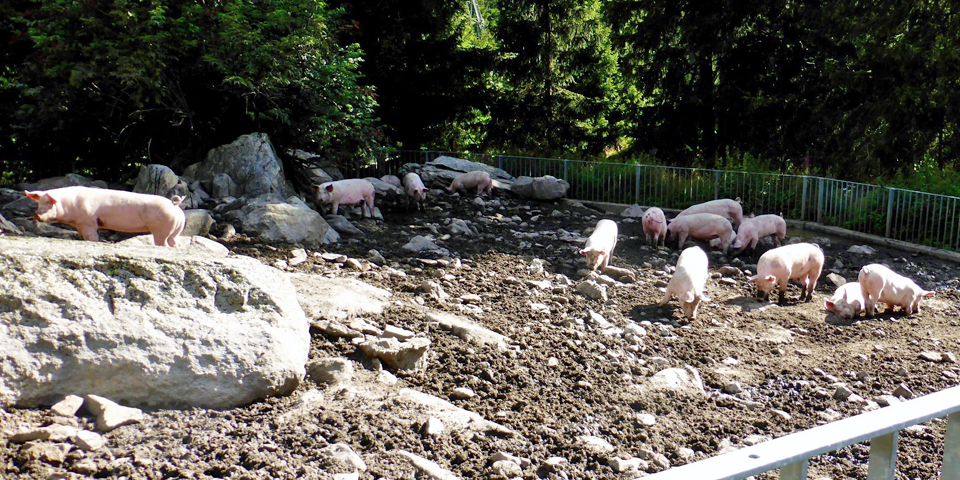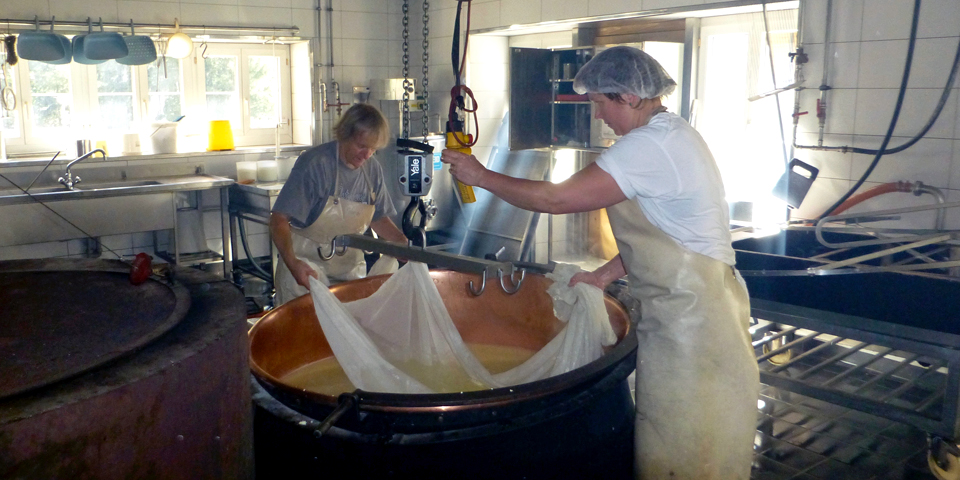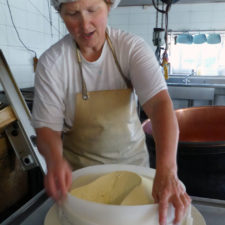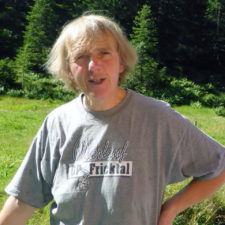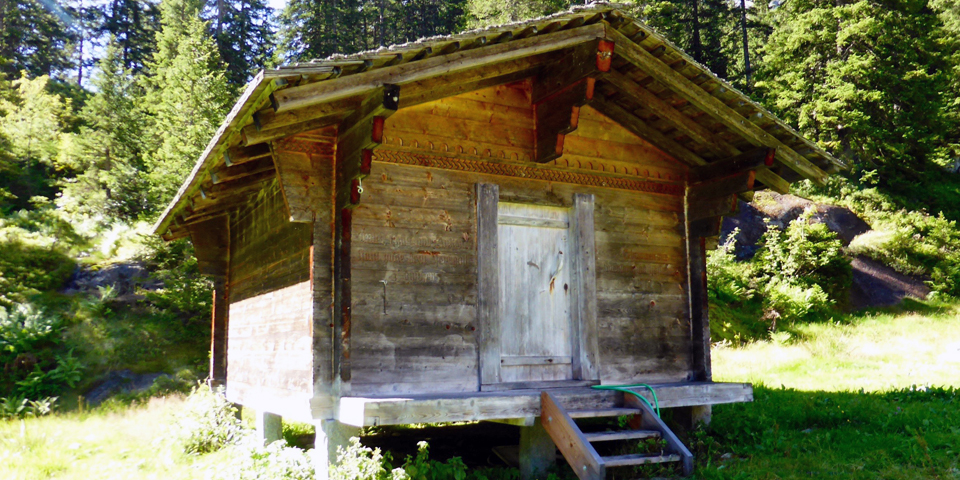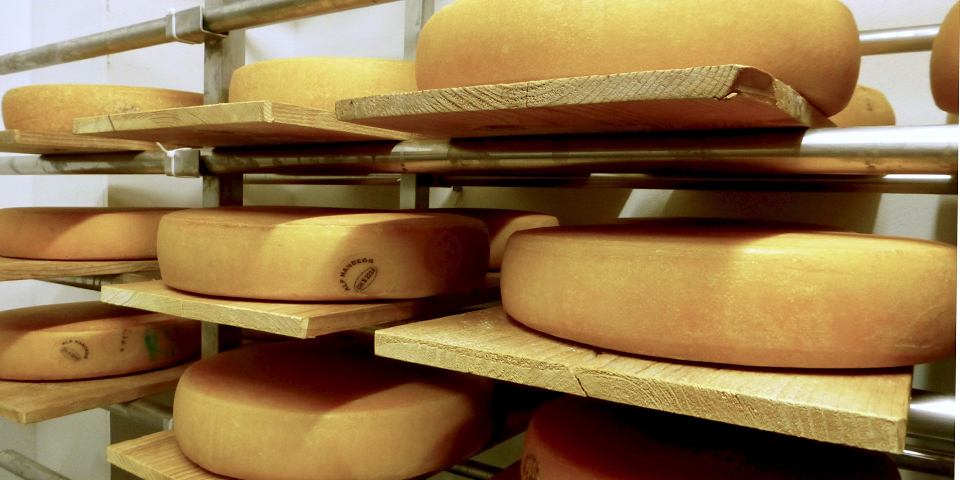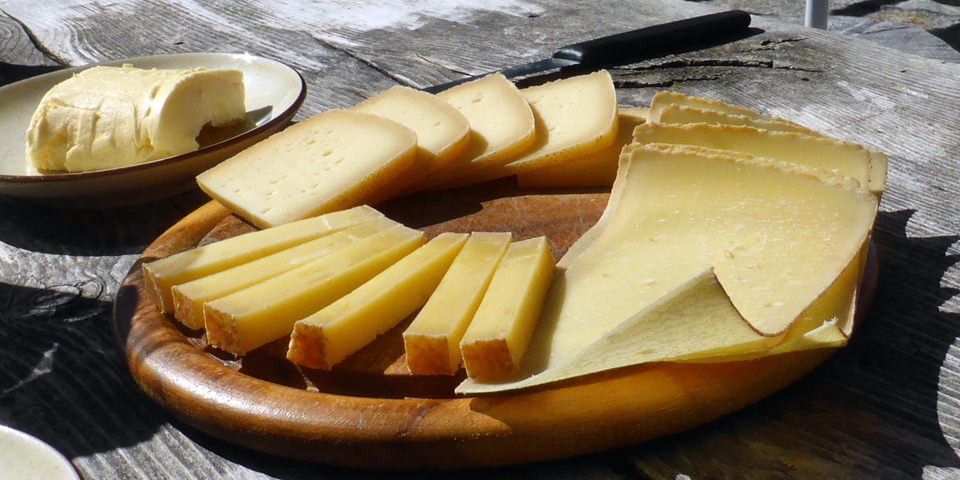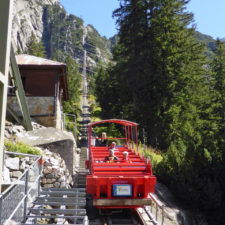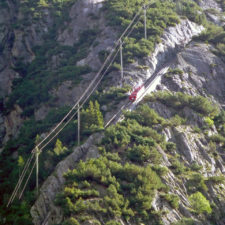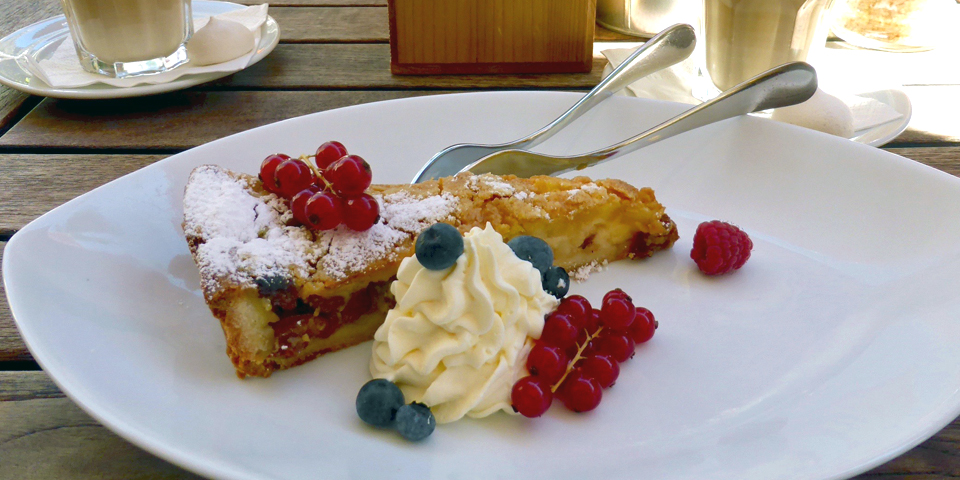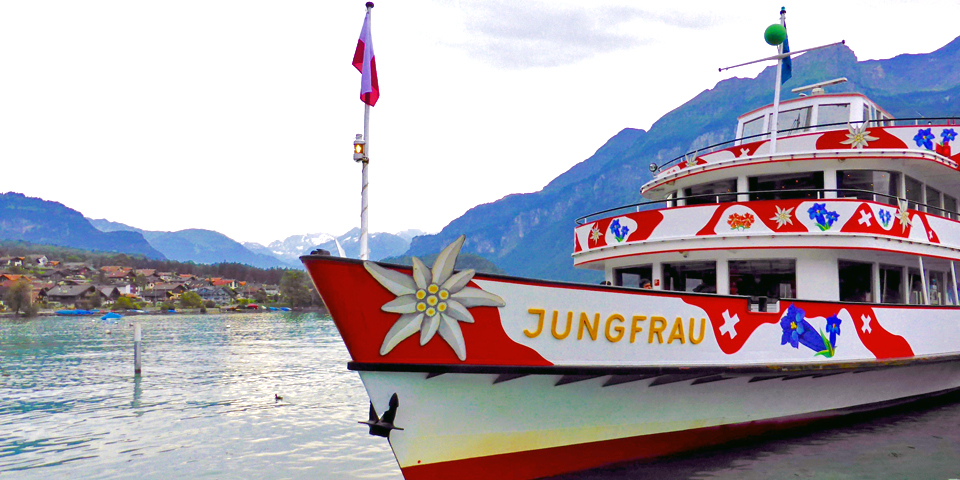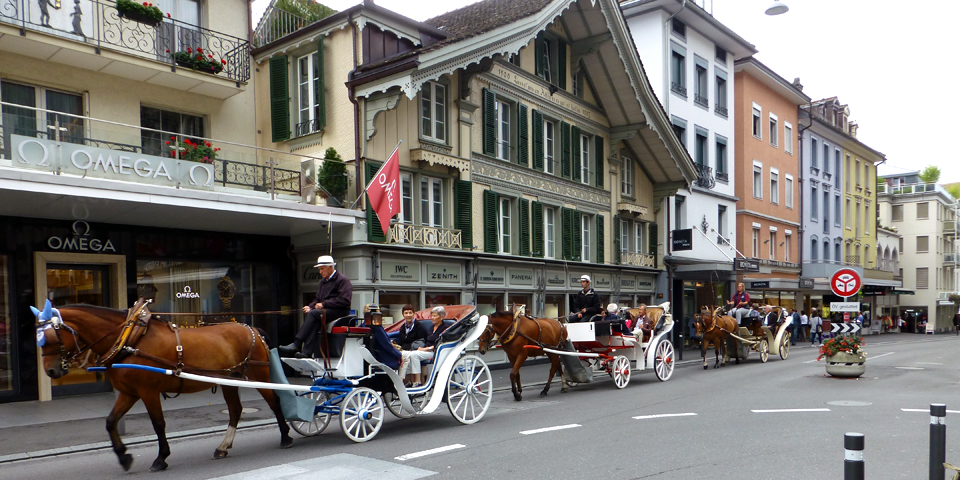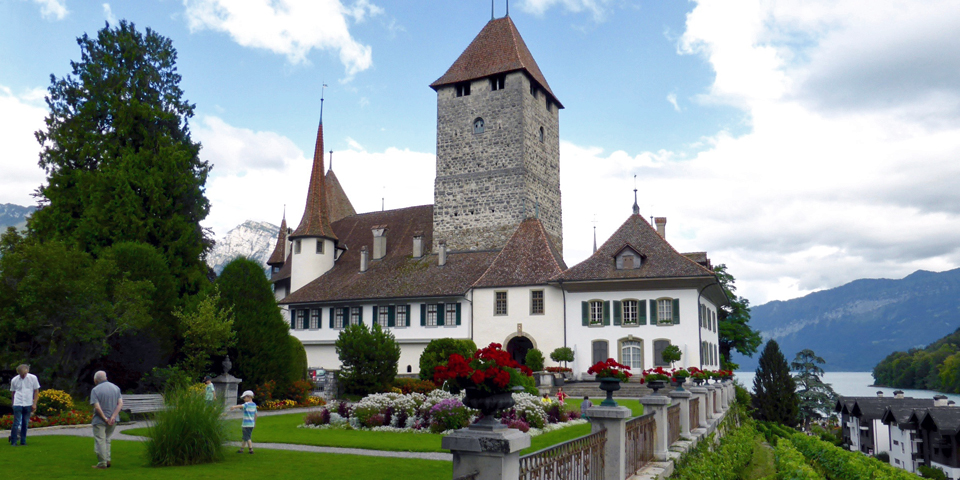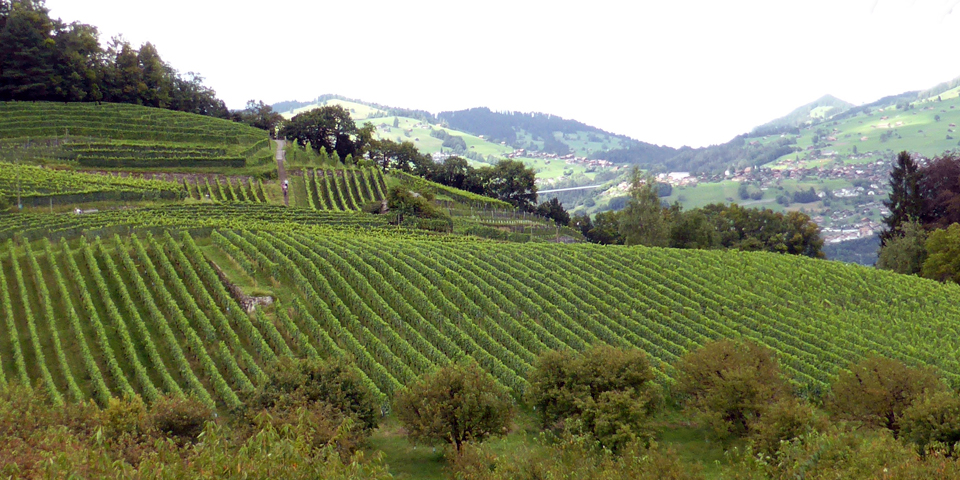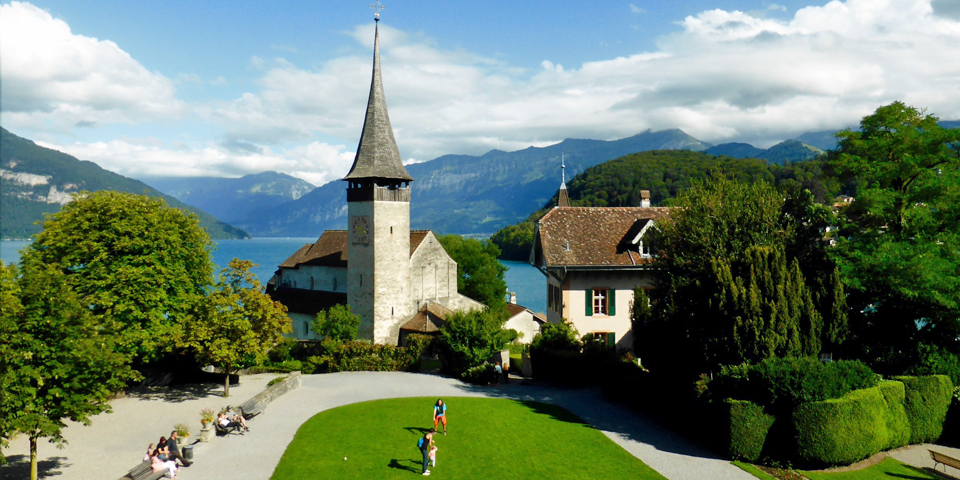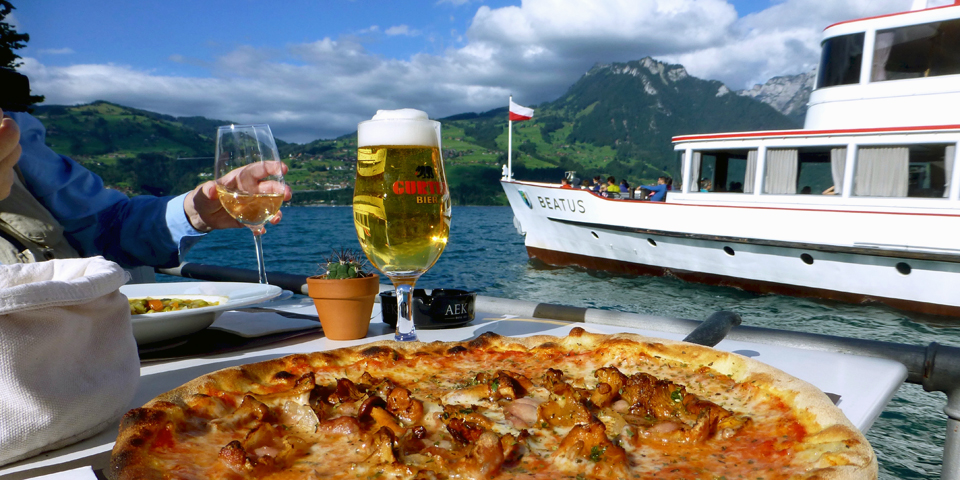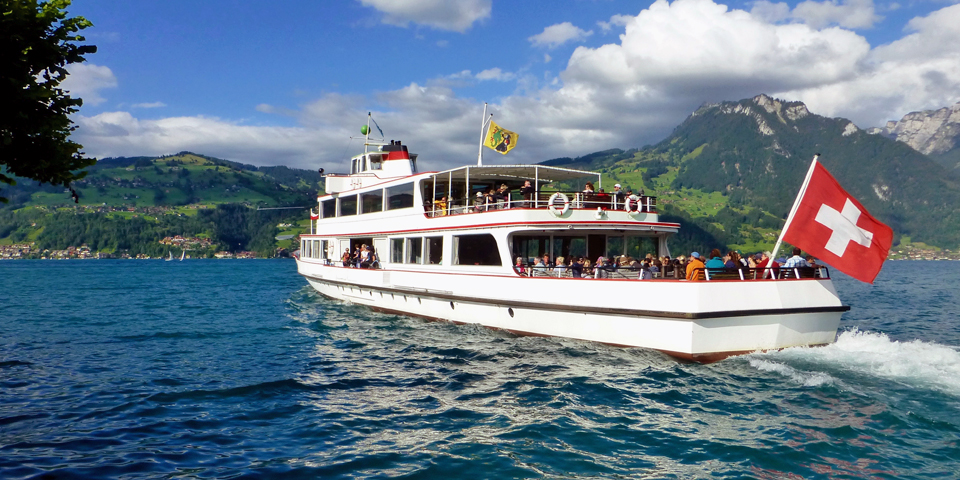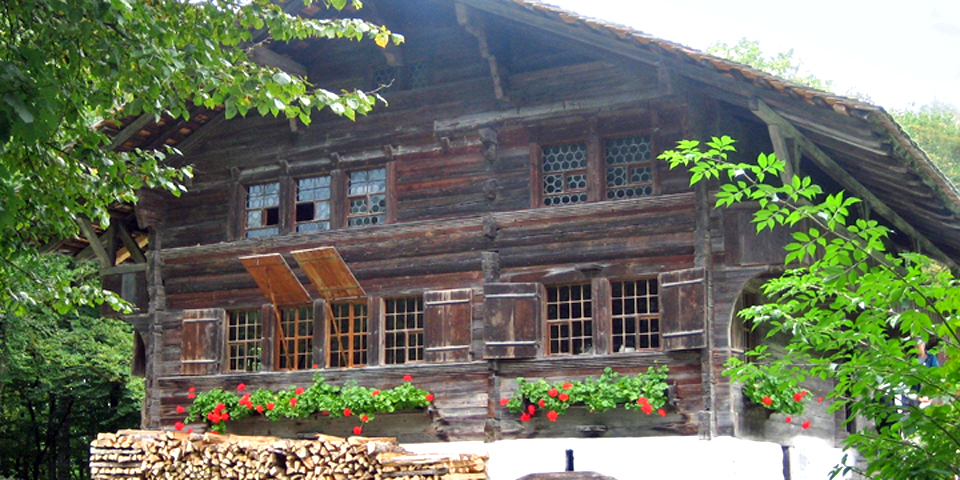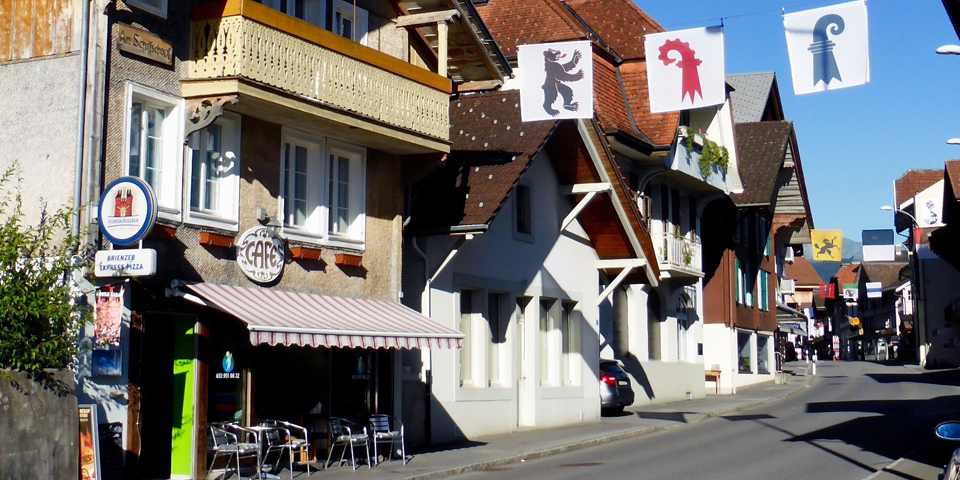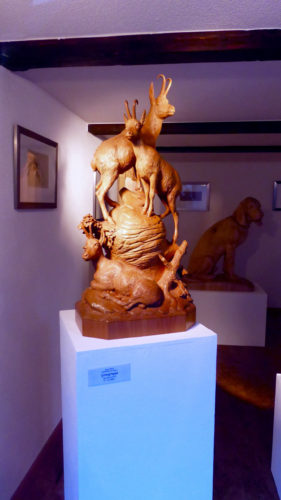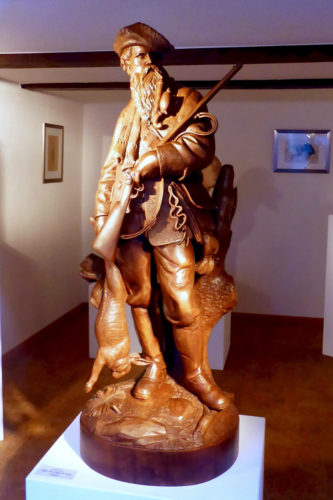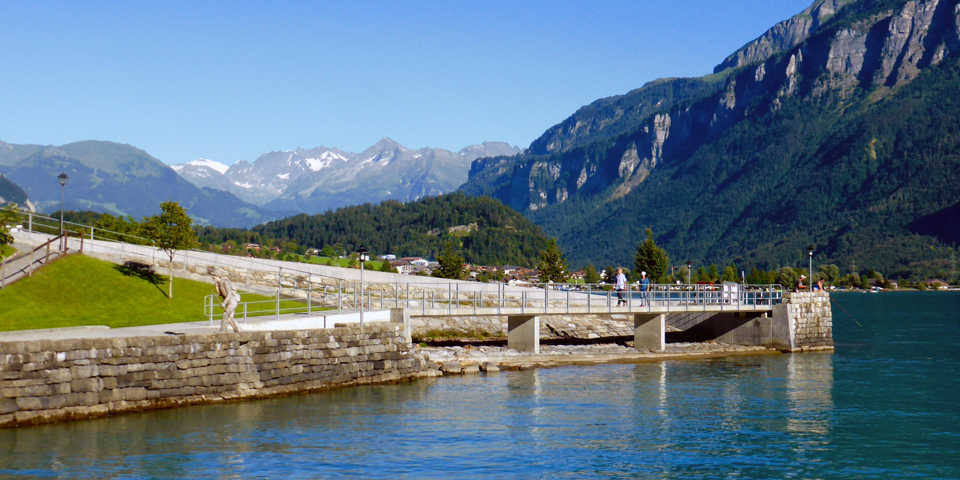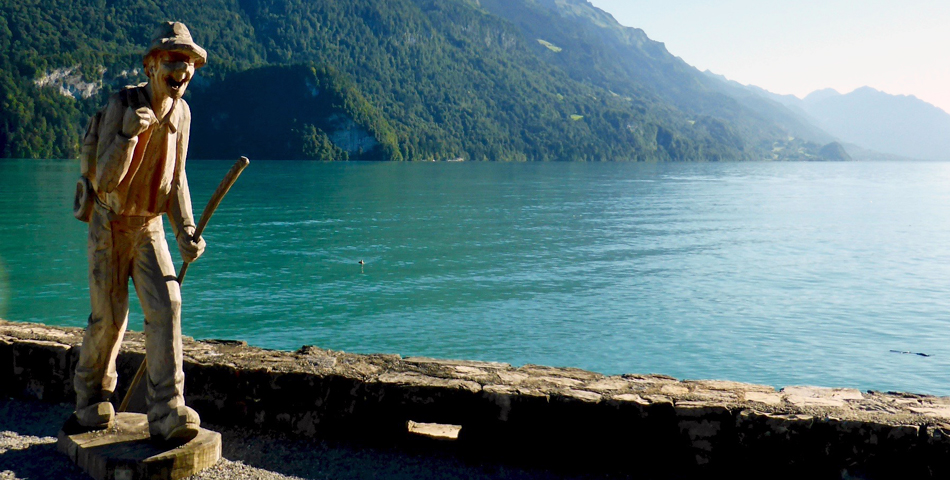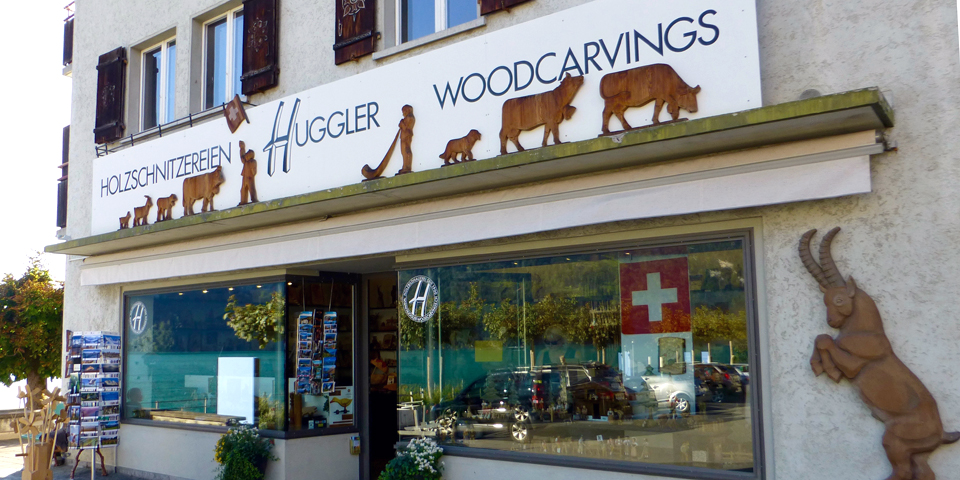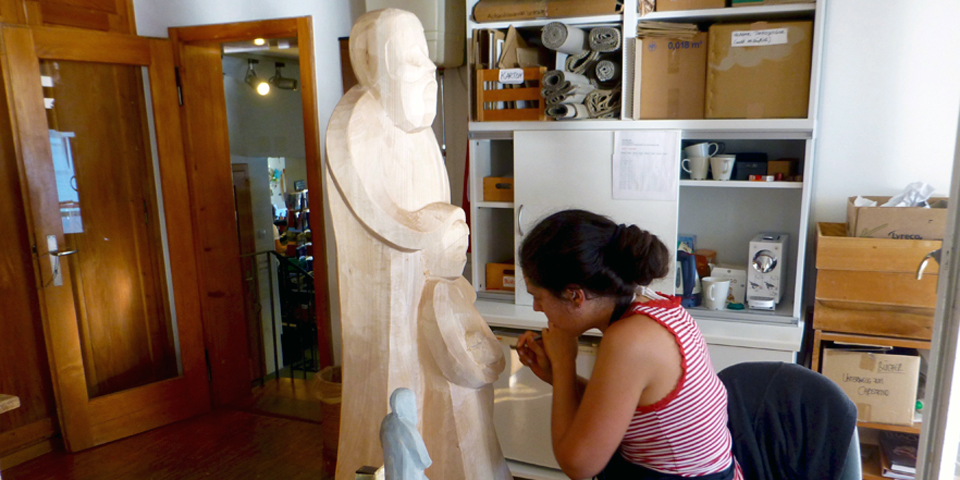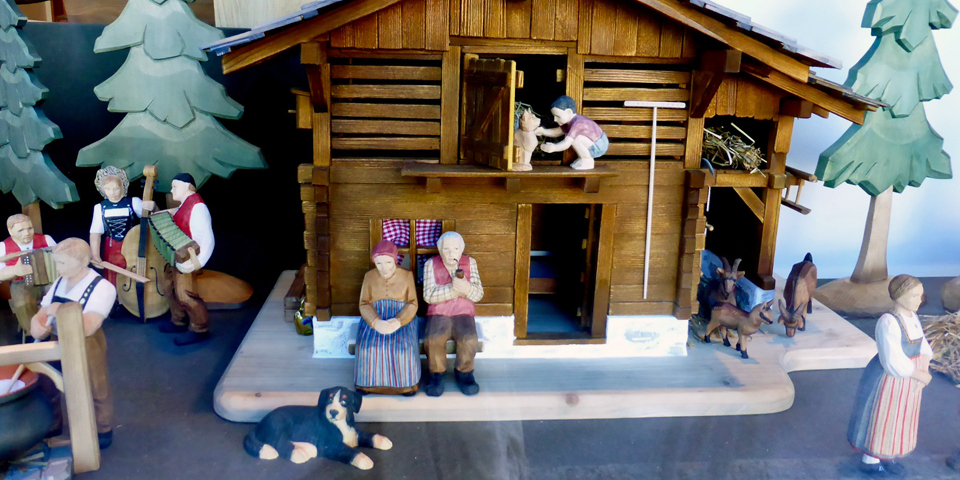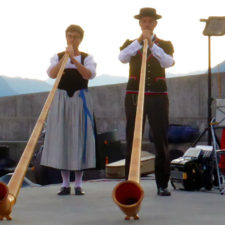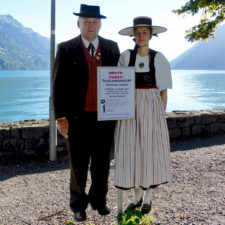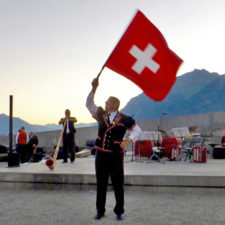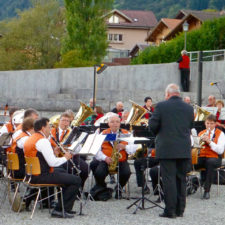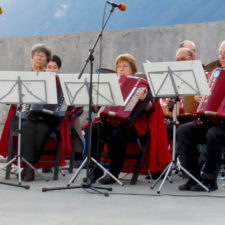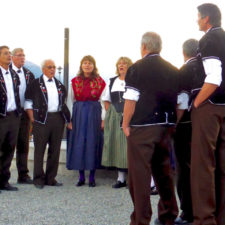An Untours apartment stay in Meiringen, Switzerland
Meiringen, Switzerland
Ever wonder what it would be like to travel independently in Europe and live like a local? It’s easy with Untours, a company that specializes in taking care of all the arrangements for a European apartment stay, including local transportation, and, if you like, airline transportation.
Information on recommended activities is provided and there are optional group activities, like an orientation get-together and an excursion or two. Support is available throughout the stay.
While a rental car might be the best form of transportation in some locations, in Switzerland, where we visited, a Swiss Travel Pass is the way to go.
envelope with Swiss Travel Passes inside
This was our second Untours apartment stay in Switzerland. This time we chose to stay in Meiringen, in the Swiss Heartland, an alpine and lakes region in the middle of Switzerland. A package arrived before our departure with all the information we needed.
Two booklets, each around 50 pages long, were included. The Swiss Hiking Guide describes hiking trails by level of difficulty, time needed, and distance. The Dream Book includes highlights of cities and towns, lake and river trips, and helpful information like trains and post buses to take, a food and menu guide for dining out or in, quick Swiss recipes, and conversion tables for the metric system.
The Swiss Hiking Guide by Untours
The Dream Book by Untours
We were given name tags so we could be easily identified by the Untours representative, Tanya, who met us at the train station, which is adjacent to the airport. She offered assistance with validating our Swiss Travel Passes and rode part way with us to Meiringen. She gave us a cell phone to use during our stay and the numbers of four Untours representatives should we have questions or need any assistance.
There was also a newsletter with practical information, more trip suggestions, and updates like special events, dates and times of festivals, city and village tours, farmer’s markets, and favorite outings and restaurants of previous Untours guests.
simplified train schedule in our Untours newsletter
some of the special events in our Untours newsletter
Trains run on a regular schedule. From Meiringen toward Lucerne, for example, trains leave at 42 past the hour, and trains in the opposite direction, toward Interlaken, depart at 14 and 51 past the hour. We were given a comprehensive regional transportation schedule book and advised to download the SBB app for convenience. Tanya reminded us to always check the time of the last train back.
We arrived in Zurich in time for an earlier train to Meiringen and, fortunately, Tanya was able to arrange for our apartment host to pick us up earlier at the train station. He showed us around the apartment and, as is done for Untours rentals, had stocked the refrigerator with some basic groceries —eggs, milk, juice, cheese, yogurt, bread, and a little butter and jam—in case we did not want to go out right away.
cheese in our apartment refrigerator in Meiringen, Switzerland
milk in our apartment refrigerator in Meiringen, Switzerland
Our Swiss Travel Passes were our tickets to all of Switzerland. They cover transportation on the system of trains, buses, and boats as well as admission to over 490 museums. Switzerland’s renowned scenic routes and local trams and buses in 75 towns and cities are also included. Most mountain railways and cable cars offer a 50% discount with a Swiss Travel Pass.
Swiss Travel System map with Meiringen, in center, highlighted in yellow
The Swiss rail service offers convenient Express Flight Luggage handling for a small fee. We could check our luggage at our departure airport and have it sent ahead to our destination rail station. Arrive by 11:30 A.M. and your luggage can be at your destination station by 6 P.M. With later flight arrivals or more remote stations, luggage may not be delivered until the next day.
On departure luggage can be sent from the local train station a day in advance and held at the airport train station, or, if flying on SWISS, sent directly to your destination airport.
Meiringen, Switzerland
Our apartment, just off the main street, was a short walk from the bus and train stations, making it easy to take day trips and go on alpine explorations. When rain was expected we thumbed through the Dream Book for rainy day suggestions, checked the television station that shows conditions on mountain peaks, or searched the forecast for sunnier areas.
We discovered that there was much to do right in and around Meiringen. The main street had a bakery, grocery stores, banks, restaurants, shops, and a molkerei for all kinds freshly made dairy products — milk, ice cream, yogurts, and quark, a fresh low-fat curd cheese.
Molkerei, the dairy shop in Meiringen, Switzerland
There was also one of the Swiss Crafts Association’s Heimatwerk shops that sells high quality handmade goods.
Heimatwerk shop, Meiringen, Switzerland
On Saturday we discovered dancers in traditional costume at the farmer’s market.
Traditional dancers at the farmers’ market in Meiringen.
The name Meiringen may bring its honorary citizen Sherlock Holmes to mind. Sir Arthur Conan Doyle came here in search of a location for Holmes to meet his demise. A funicular and bus now takes visitors to that spot, Reichenbach Falls.
Reichenbach Falls. Meiringen, Switzerland
The Sherlock Holmes Museum, with its backdrop of the thundering falls, opened in 1991 in the old English church on the 100th anniversary of Holmes’ presumed death.
Sherlock Holmes Museum, Meiringen, Switzerland
Meiringen was once a top destination in the emerging mountaineering and tourist trade popular with wealthy Englishmen. Another statue by the museum honors Meiringen resident Melchior Anderegg (1827-1914), who was called “König der Bergführer”, or “King Alpine Guides.”
statue honoring Melchior Anderegg, Meiringen, Switzerland
Fans of the books will identify the items in the carefully collected exhibits in the museum.
Sherlock Holmes Museum, Meiringen, Switzerland
Furnishings in the authenticated recreation of Sherlock Holmes’ and his assistant Dr. Watson’s high Victorian middle class parlor at 221 B Baker Street in London are immediately recognizable to fans of the books. The bronze Holmes statue outside has symbolic clues relating to the stories.
recreation of Sherlock Holmes’ parlour, Sherlock Holmes Museum, Meiringen, Switzerland
The ParkHotel du Sauvage, where Holmes was said to spend his last night, is next door. The falls, hotel, and Swiss Reformed church are on the Swiss list of cultural property, and Meiringen is part of the Inventory of Swiss Heritage sites.
Parkhotel du Sauvage, Meiringen, Switzerland
Banners strung across the streets also announce that Meiringen is the birthplace of meringues.
Meiringen, Switzerland
The bakery run by the Frutiger family sells a variety of the confection, including my favorite, chocolate ones with chewy centers.
meringues, Meiringen, Switzerland
The decorative ones featuring Sherlock Holmes make a fine souvenir or gift.
meringues featuring Sherlock Holmes, Meiringen
Meringue shells with a wide selections of fruit and ice cream toppings are served in their tea room.
meringue confections, Meiringen, Switzerland
The bakery also sells a long specialty cake based on a legendary long, stumpy, scaly creature called a Tatzelwurm. The creature is depicted emerging from the bakery’s facade.
bakery with tatzelwurm on exterior, Meiringen, Switzerland
Itis said to have been sighted several times in the Swiss Alps over the past couple of centuries.
tatzelwurm cakes, Meiringen, Switzerland
Meiringen is at the foot of several alpine passes and was an early medieval market town along the trade routes. The restored tower of the Restiturm, a 13th century castle that regulated trade, still stands to the east, near the gondola.
One afternoon, as part of an event called Säumerfest, a group in traditional attire arrived with donkeys and mules laden with wooden cheese boxes to parade through town. They were recreating the times when cheese and other goods were transported by way of the passes through Meiringen.
Säumerfest, Meiringen, Switzerland
We first spotted them by the 15th century St. Michael’s Church and the Hasli-Museum, where the exhibits include a description of mule tracking.
Säumerfest 2016, Meiringen, Switzerland
St. Michael’s Church was built over ruins of the medieval one that is now accessible by a stairway.
ruins below St. Michael’s Church, Meiringen, Switzerland
Säumerfest 2016 followed the Sbrinz-Route, named for the hard cheese of central Switzerland. This trail from Lucerne to Domodossola is now popular with hikers.
Muleteers, Meiringen, SwitzerlandWe learned in the Hasli Museum that cheese and salt were traded for textiles, wine, rice, and spices.
crystal exhibit, Hasli Museum, Meiringen, Switzerland
pack saddle known as a saurnsattel, Hasli Museum
Crystals from the mountains also fetched high prices. They were made into crystal glasses in workshops of Milan and Venice.
Post buses offer easy access to the passes, and we had our own alpine experience by gondola right on the Hasliberg mountainside behind us. The ride from Meiringen to the mountaintop is half price (30 CHF) with the Swiss Travel Pass and free on your birthday.
gondola, Hasliberg
The series of three gondolas took us through forests, past gushing waterfalls, over chalets on rolling hills and to the alpine tundra.
Mountaintop trails along the Hasliberg mountainside are popular with hikers.
The first cable car runs from Meiringen to Reuti, where we discovered several restaurants with spectacular mountain views.
view from the terrace of the Hotel Reuti restaurant, Hasliberg
Reuti sign near gondola
Village of Reuti from the Hotel Panorama
The gondola railway, Bergbahnen Meiringen-Hasliberg, continues from there to Bidmi and Mägisalp.
Bidmi
Families with small children disembarked at Mägisalp, where hands-on theme trails run through woods and meadows.
Mägisalp, Switzerland
It features the magical story world of Muggestutz, the oldest Hasli dwarf and his friends.
Muggestutz gondola, Mägisalp
Muggestutz gondola stop, Mägisalp
There are playground and picnic areas, restaurants, adventure stations, and reminders of the stories like a swing bridge and cave.
restaurant, Mägisalp
restaurant, Mägisalp
Trotti Bikes, a kind of scooter, can be rented to ride downhill to Bidmi.
bike rentals, Mägisalp, Switzerland
We continued higher on our third gondola for a peak experience at Planplatten. We were awestruck by the view of the mountains, valley, and Lake Brienz.
view from gondola Mägisalp to Planplatten
There was the sound of cowbells as we passed alpine huts and pastures.
Mägisalp, Switzerland
We enjoyed lunch at the summit at the panoramic Alpen Tower restaurant, also a popular spot for Sunday buffet breakfast.
Alpen Tower Restaurant, Planplatten, Switzerland
As we entered the restaurant building we discovered a room of Muggestutz Winter World exhibits based one of the books.
Mugglestutz at the Winter Wonderland display, Alpen Tower, Switzerland
There was also a mountain crystal display. Kaspar Fahner’s Wonder of Crystals exhibit at Fahner Sport in Hasliberg features one of Europe’s top mineral collections. Entry is free when the crystal shop is open.
crystal display at the Panorama Restaurant, Planplatten, Switzerland
We were nearly 7400’ above sea level and had a breathtaking 360 degree view of the Bernese and Central Alps.
view from Planplatten, Switzerland
view from Planplatten, Switzerland
view from Planplatten, Switzerland
Tiny wildflowers lined the highland paths.
wildflowers landed the alpine hiking trails
Muggestutz books and other items were for sale here and in Mägisalp.
Muggestutz books on display at the Panorama Restaurant, Planplatten, Switzerland
Muggestutz book in English
Later, back in Meiringen, we found English versions of Muggestutz books at the Jenny & Banholzer bookstore and bought the first one in the series for our granddaughter. The clerk gift wrapped it for free.
Another day we rode a post bus to meet an Untours representative for an excursion to Alpkäserei Handegg, a cheesemaker’s hut in the Grimsel region of Switzerland.
alpine pasture seen from the post bus
En route we passed the sign for Aareschlucht, a gorge carved by the Aare River.
One of the Untours guides boarded the bus along the way and guided us to the cheesemaker’s hut.
cheesemaker’s hut, Switzerland
Pigs frolicked in the mud, plump from the cheesemaking by-products.
pigs at Alpkäserei Handegg, Switzerland
Anne, one of the two women who work here, gets up at 4 A.M. to milk the cooperative’s twenty-eight cows that graze on the flavor-enhancing flowers and herbs in the summer alpine pastures she pointed to on Alp Aegerstein. She milks the cows again at 4 P.M. and works until 7:30 or so every night.
We watched she and the other cheesemaker, Barbara, used the milk to make mountain cheese, bergkäse, in a big cauldron.
cheese making at Alpkäserei Handegg, Switzerland
It was strained with cheesecloth and pressed into round forms.
Barbara, molding cheese at Alpkäserei Handegg, Switzerland
Anne, who milks the cows twice a day, Alpkäserei Handegg, Switzerland
Barbara brought us to another hut where she washes, rotates, and stores the cheese.
At the end of the season the cheese is divided among the farmers in the association in proportion to the milk produced by their cows.Bergkäse in Alpkäserei Handegg cheese storage hut
We sampled a cheese plate of alpmutschli, aged 3-4 weeks , and bergkäse aged 1 and 2-years, along with Handegg bread and butter on tables just outside their small shop that sells these and other local food specialties.
cheese plate of alpmutschli, aged 3-4 weeks , and bergkäses aged 1 and 2-years, along with Handegg bread and butter
From there the post bus runs along the Grimsel Pass. The Gelmerbahn funicular offers a hair-raising 12 minute 106-degree, ride, the steepest in Switzerland. It leads to a path around Lake Gelmersee.
The Gelmerbahn funicular in Handegg is the steepest in Switzerland.
Ride the Gelmerbahn funicular in Handegg to a trail around Gelmersee lake.
For more thrills there’s the Triftbahn, an aerial cable car to the 550’ Trift Bridge, a Nepali hanging bridge that is over 300’ above the Trift glacier region.
For those hungry after an adventure, the Hotel Handeck, near the cheese hut, has an excellent apple cake, served with whipped cream and berries.
apple strudel, Hotel Handeck, Switzerland
The next day we used our Swiss Travel Passes and took the train to nearby Brienz and the boat across Lake Brienz to Interlaken, a touristy transportation hub.
Jungfrau, boat from Brienz to Interlaken along Lake Brienz, Switzerland
We stopped for lunch and a strolled the row of 5-star hotels built when Interlaken was a stop along the Golden Age Grand Tour of Europe.
Interlaken, Switzerland
Another boat took us across beautiful Lake Thun to Spiez. We toured the medieval castle and learned how it became a patrician residence.
Spiez Castle, Switzerland
The view from the castle of the mountains and vineyards, and thousand-year-old castle church.
Spietz, Switzerland
Spies Castle Church, Spiez, Switzerland
We shared a pizza by the bay that has been described as one of the most beautiful in the world.
pizza by the boat dock in Spietz, Switzerland
The train was the faster option for the return trip, but we opted for the last boat back across beautiful Lake Thun.
boat on Lake Thun, Spiez, Switzerland
On the last day of our week-long apartment stay in Meiringen we took the train to nearby Brienz. We had already visited Ballenberg, the open-air folk museum with over a hundred century and older buildings arranged geographically to represent all of traditional Switzerland.
chalet, Ballenberg, Switzerland
This time, we spent our last day right in Brienz, Switzerland’s top woodcarving village and center of Switzerland’s wood carving schools.
Brienz, Switzerland
We browsed the galleries in the old wooden houses along the main street.
fine wood carving in Brienz, Switzerland
fine wood carving, Brienz, Switzerland
We walked back along the waterfront promenade.
lakeside promenade, Brienz, Switzerland
There are life-size wood carvings along the way.
hiker along the lakeeside promenade in Brienz
A popular shop by the promenade was open.
Huggler wood carving shop, Brienz
An artist was at work in the studio in the back.
Huggler wood carving studio, Brienz
The shop featured a wide range of traditional and religious themed carvings, toys, and ornaments.
wood carving, Brienz
That evening we attended the free folklore concert.
alphorns, Brienz, Switzerland
Folklore Concert, Brienz, Switzerland
The performance included a brass band, yodelers, alphorns, a flag thrower, and concertina club and ended in time for one of the last trains back to Meiringen.
flag thrower, Brienz Folk Concert, Brienz, Switzerland
brass band, Brienz Folk Concert, Brienz, Switzerland
Concertina Club, Folklore Concert, Brienz, Switzerland
yodelers, Folklore Concert, Brienz, Switzerland
After our week in Meiringen with Untours it was time to board the train for the next Swiss lake and mountain adventure — Lucerne.

